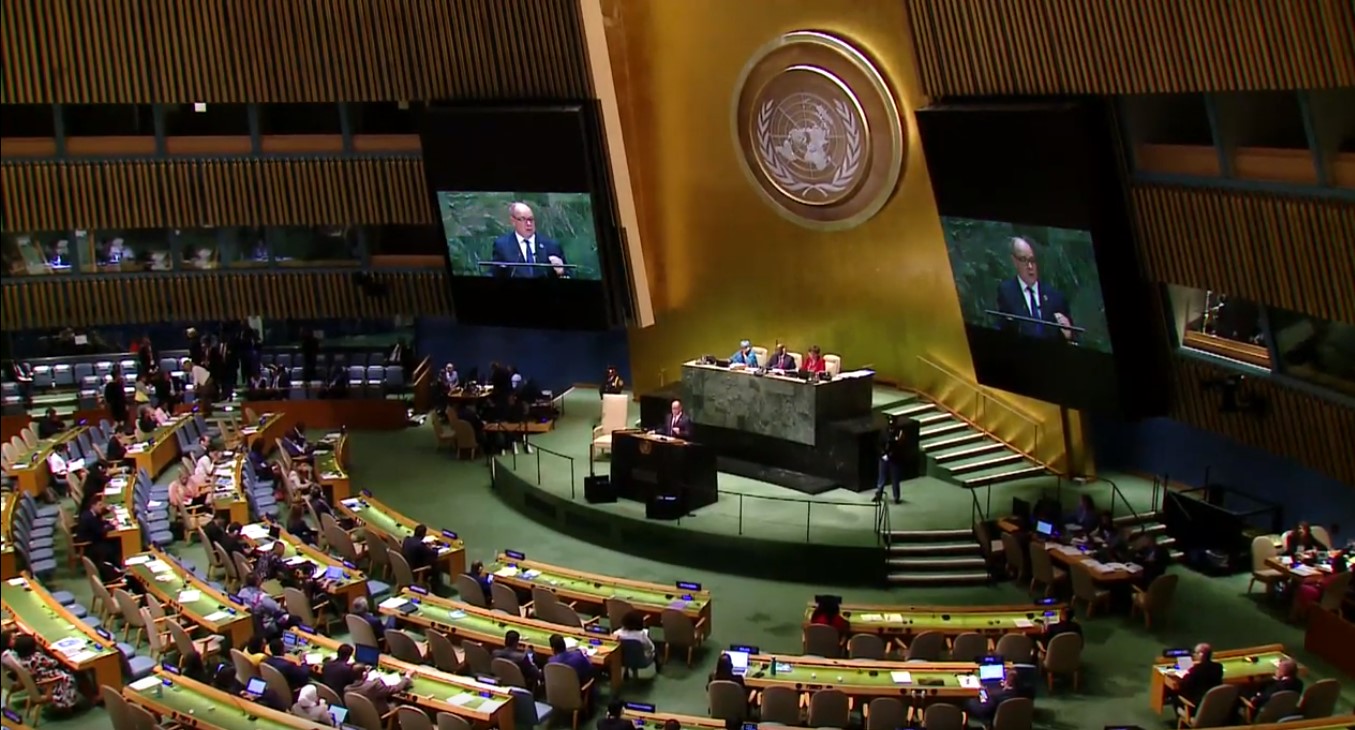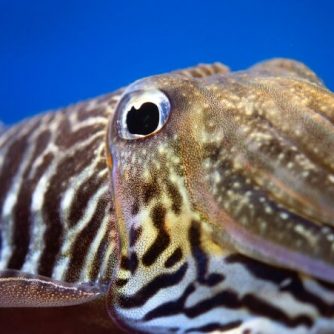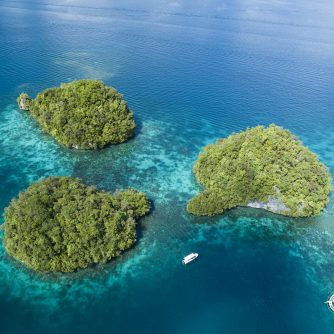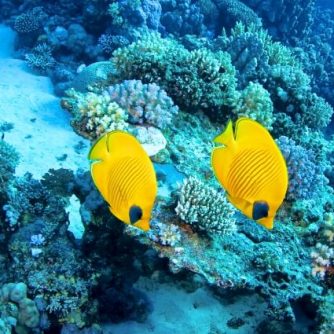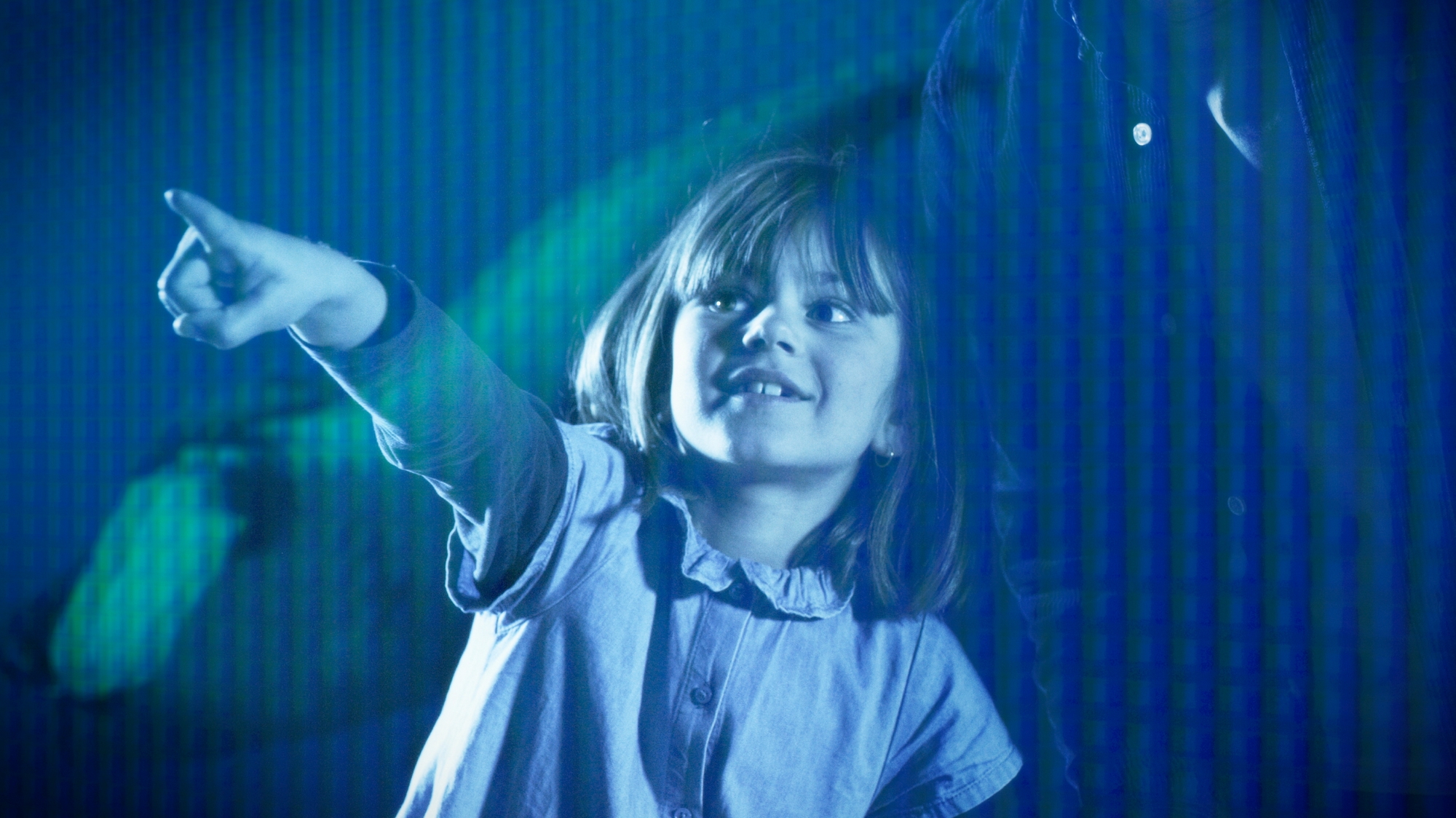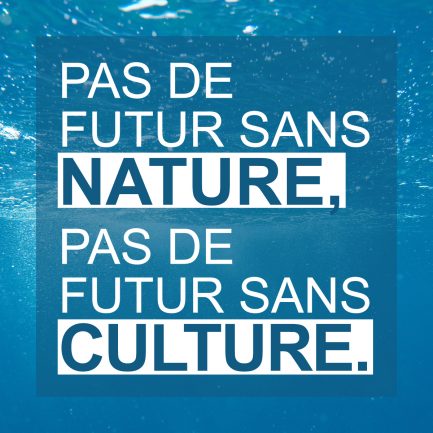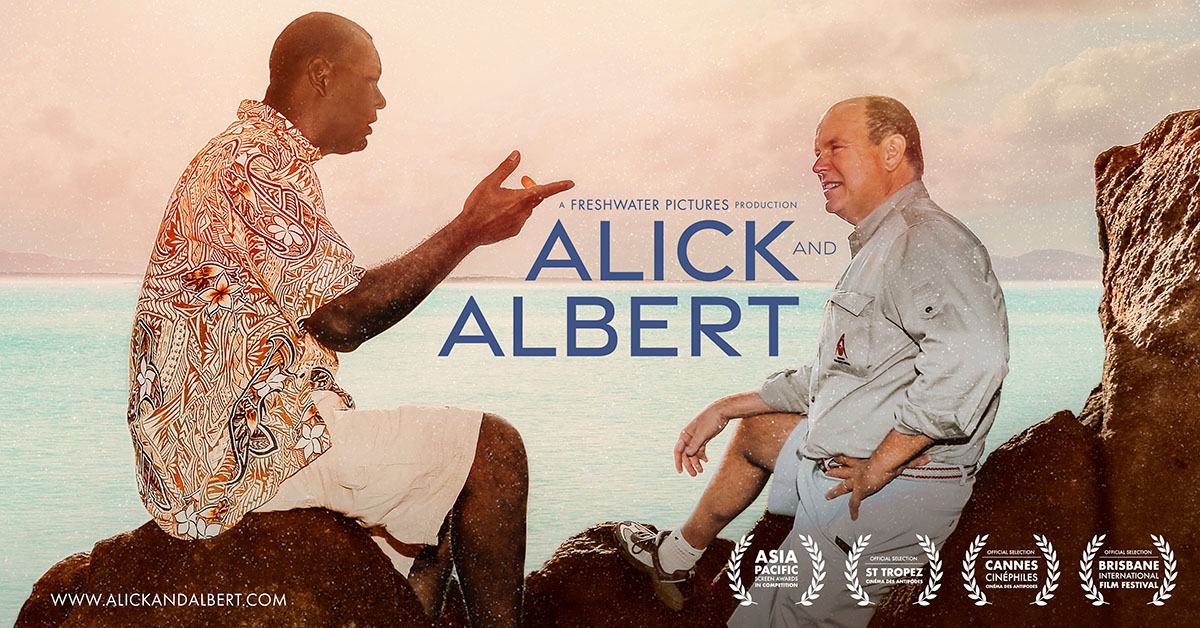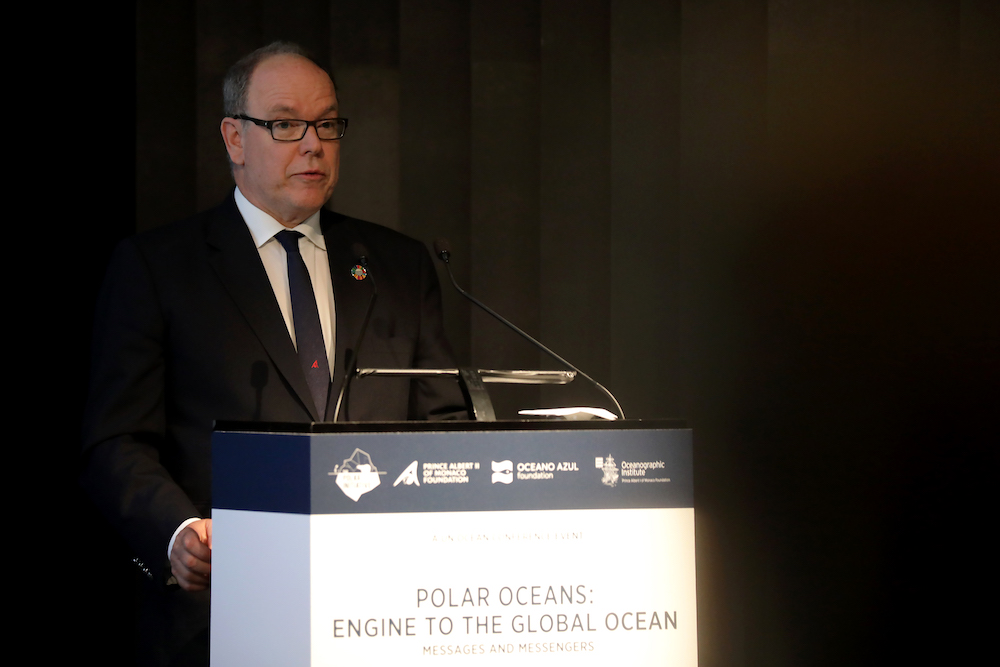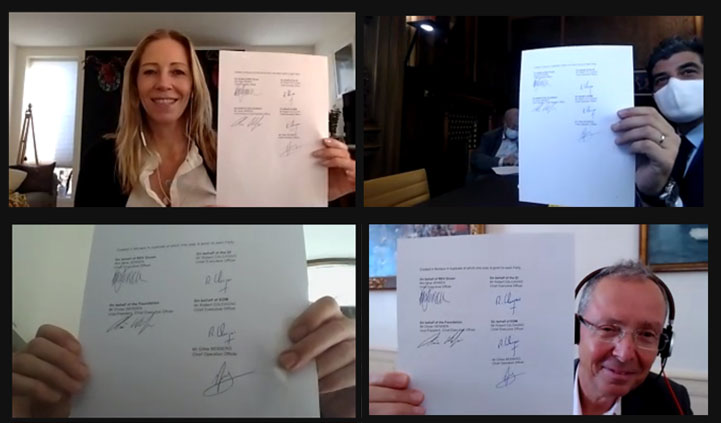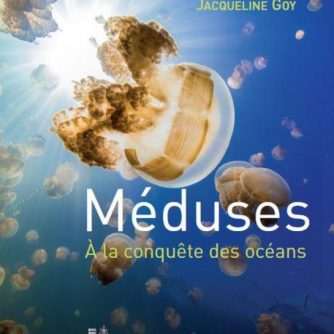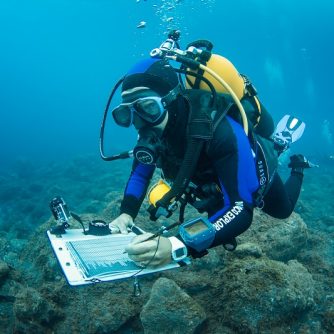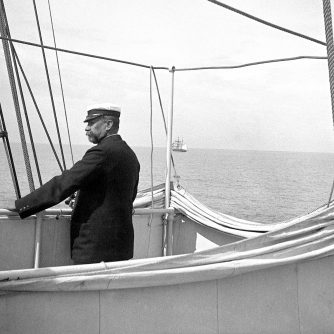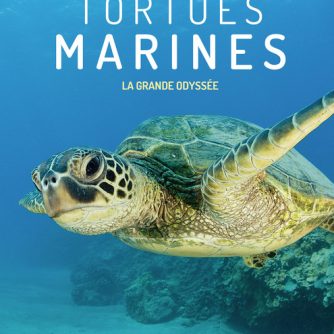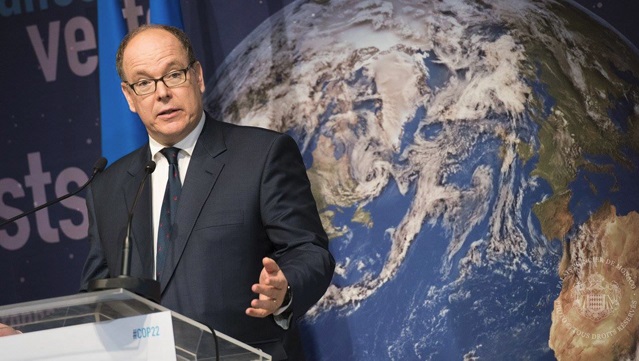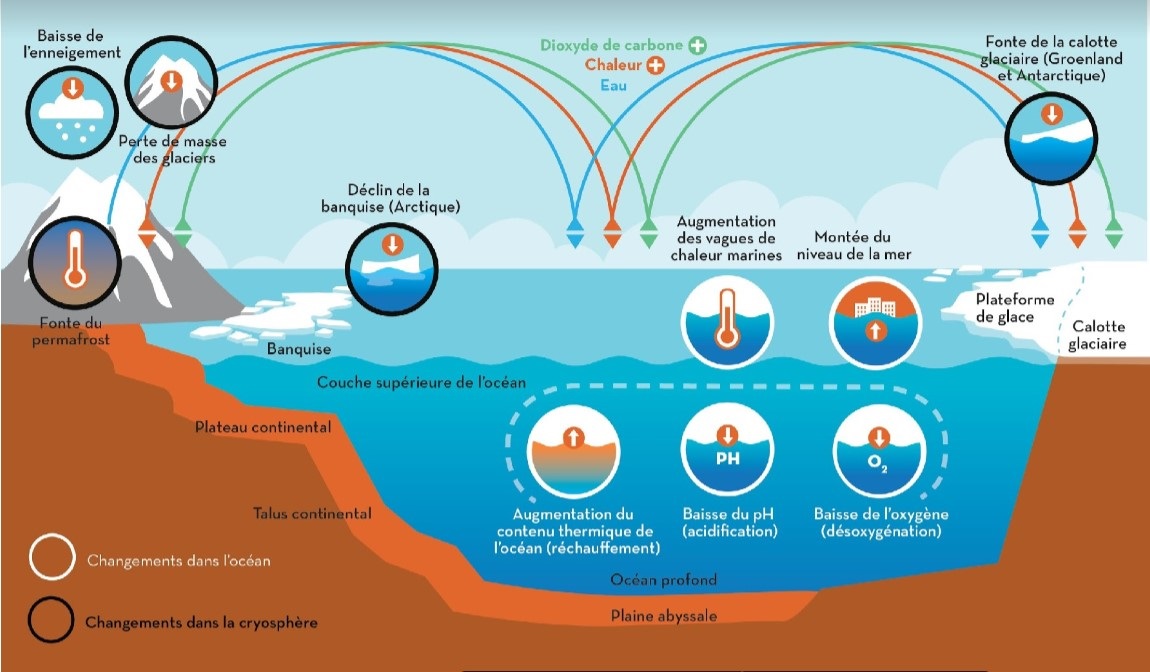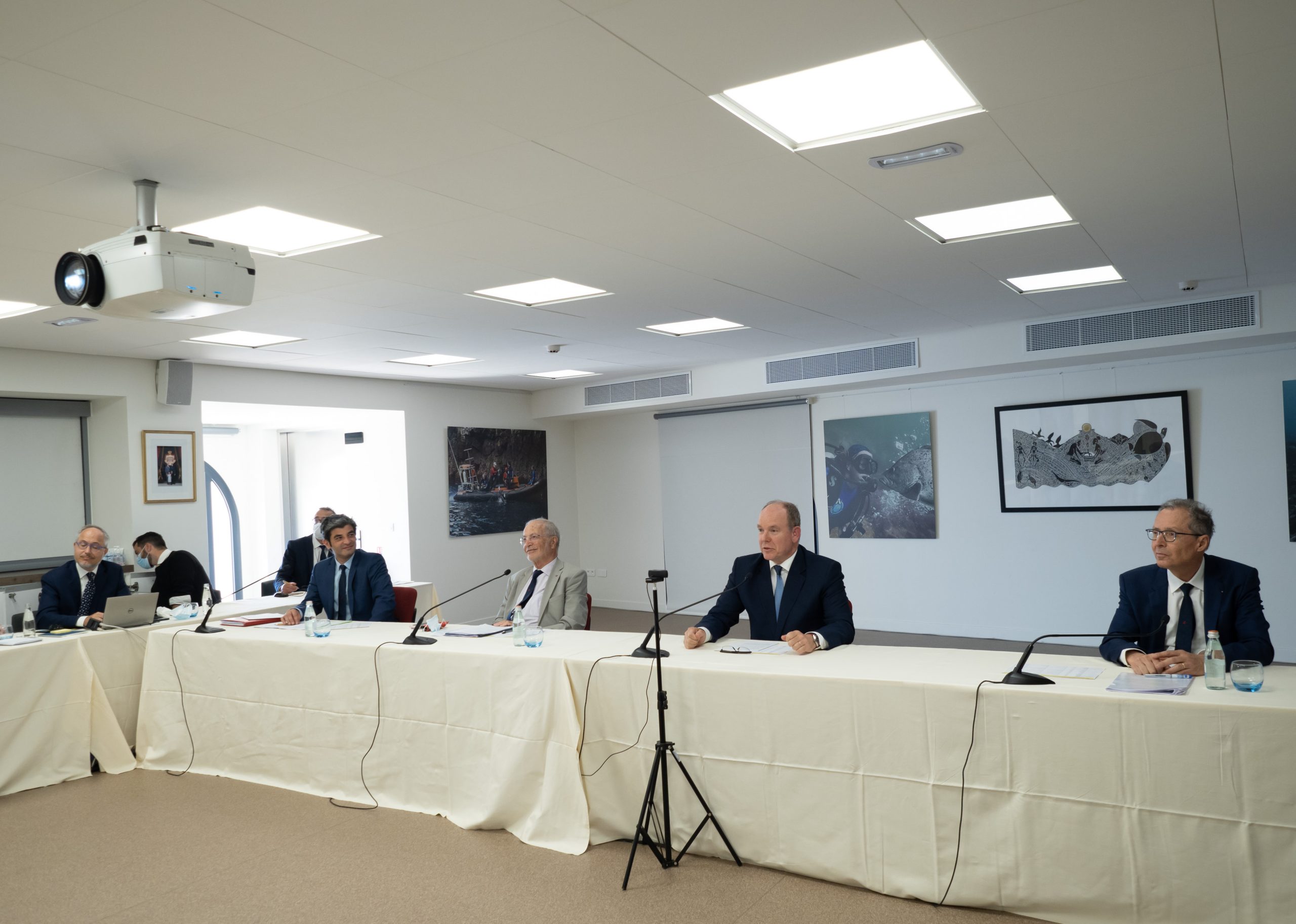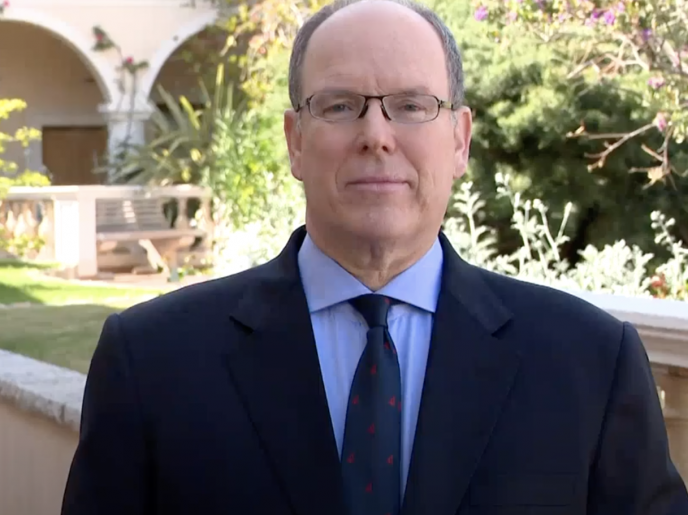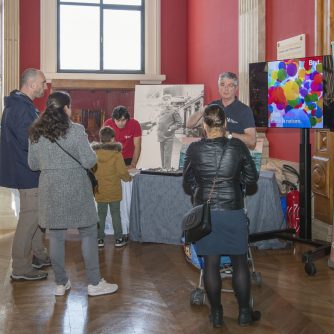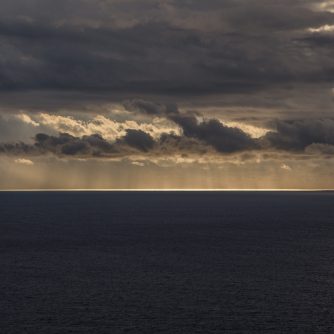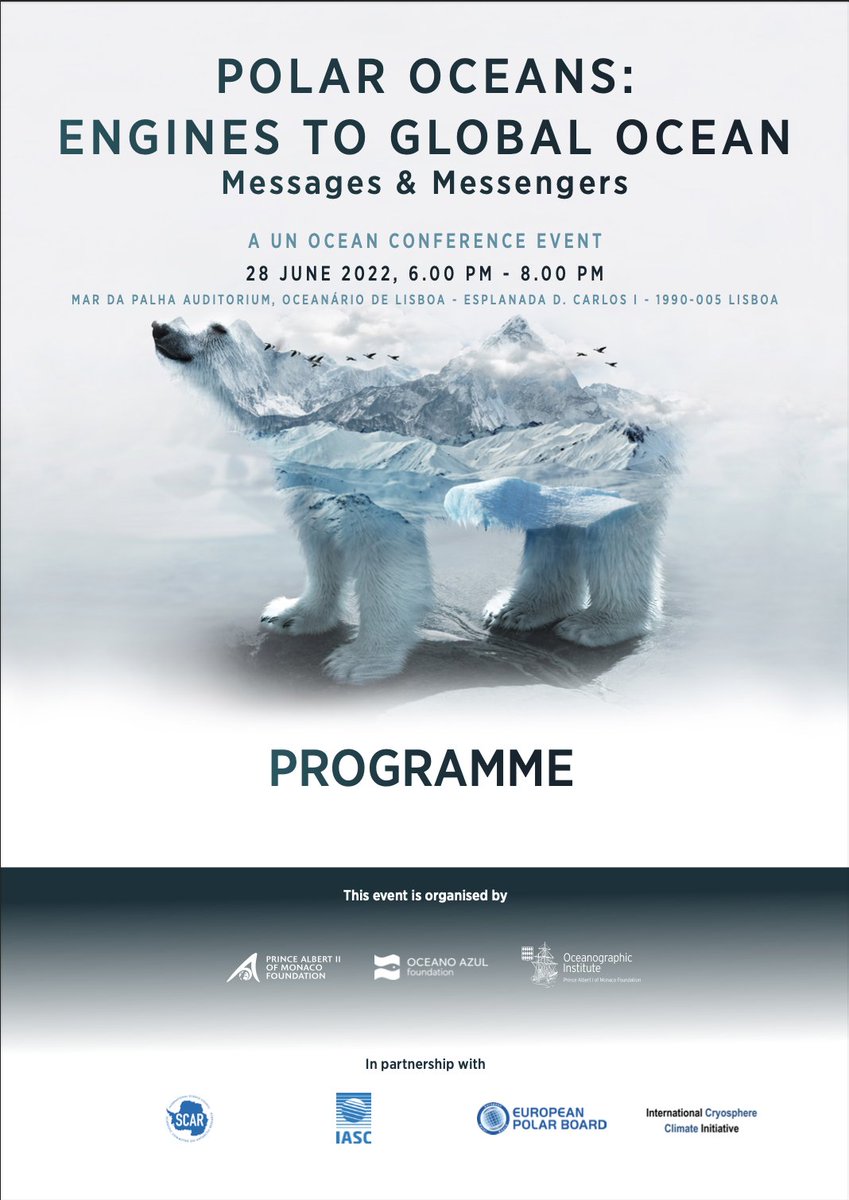
The Institute receives a Coco de Mer, a rare species emblematic of the Seychelles.
- Reading time: 8 min
- Date: March 27, 2024
L’Oceanographic Institute, in partnership with Seychelles Islands Foundation (S.I.F.) and the Honorary Consulate of the Republic of Seychelles in Monaco, organized an official ceremony to hand over a Coco de mer seed, a rare and emblematic species. The event was held on Saturday, June 29, 2024, at the Monaco Oceanographic Museum, in the “Oceanomania” section, the world’s largest cabinet of marine curiosities.
Importance of the coco de mer, an endemic palm on the Seychelles islands of Praslin and Curieuse.
VisitSea coconut (Lodoicea maldivica) is a palm famous for producing the largest seed in the plant kingdom. It plays a crucial role in its ecosystem, providing habitat, food and breeding grounds for many local species. The Seychelles Islands Foundation (S.I.F.) manages a large part of the Coco de mer population in sites such as Vallée de Mai, Fond Peper and the Fond Ferdinand reserve.
For over 15 years, the S.I.F. has been actively working to conserve the Coco de mer. Thanks to their efforts, the species was downgraded from “Vulnerable” to “Endangered” on the IUCN Red List in 2011. In 2023, with the support of the Franklinia Foundation, the S.I.F. identified around 5,800 Coco de mer trees. Although their numbers have increased, the species remains threatened by fire, poaching, invasive alien species and climate change.
photo credit ©Aude Hurstel _ AudePhotoGraph
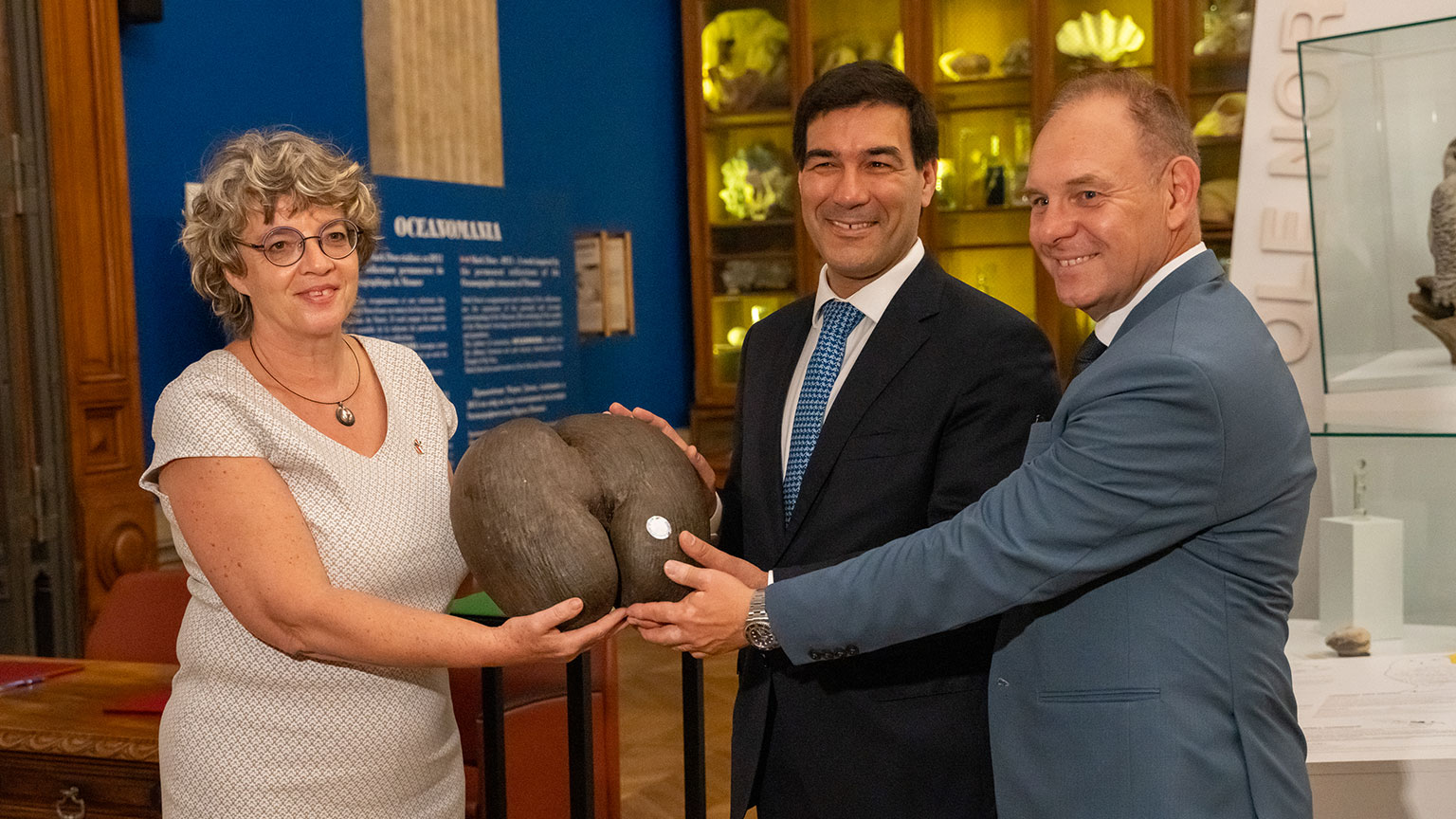
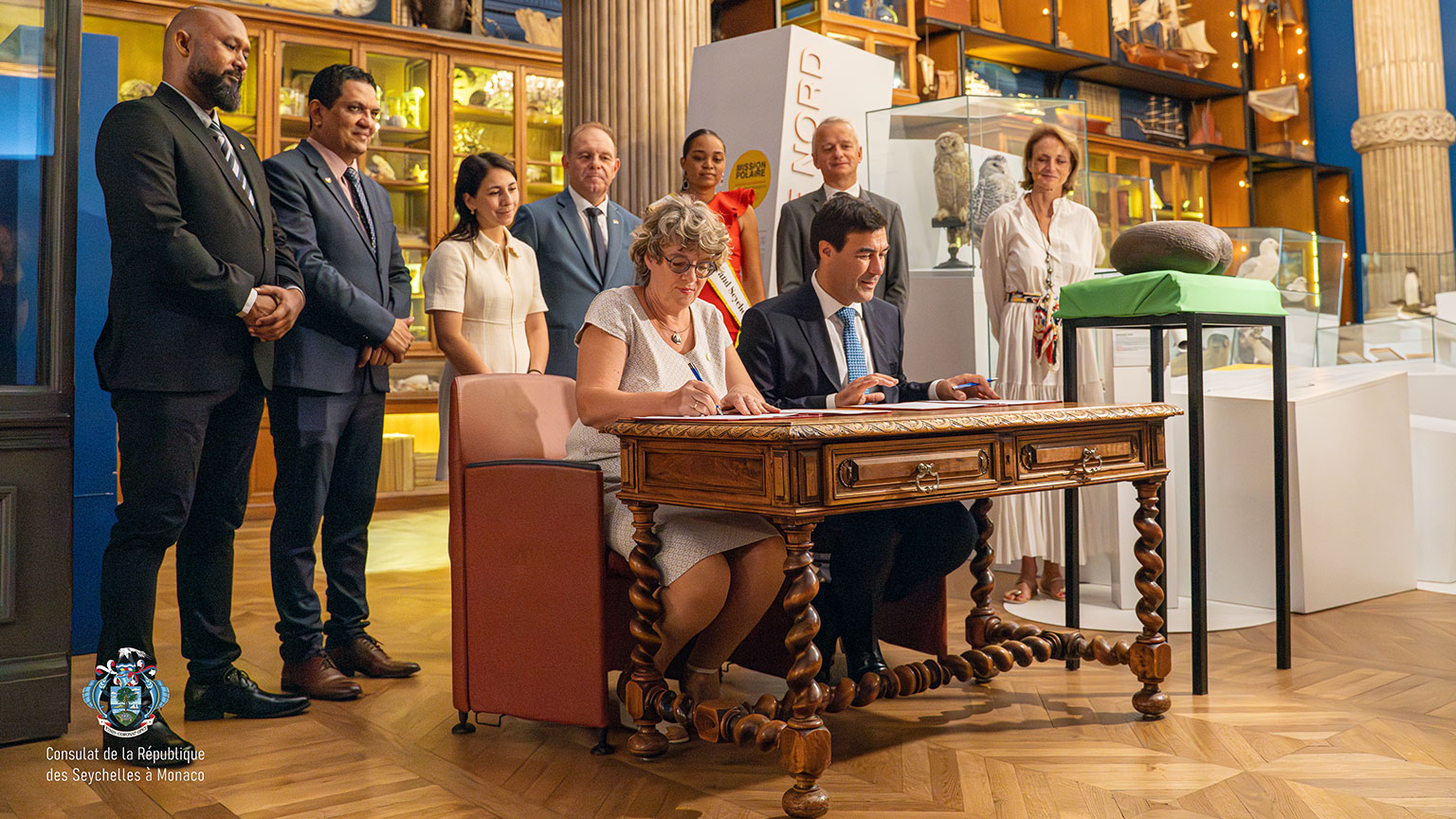
Award ceremony at Monaco Oceanographic Museum
Mr Jean-François NOARO, Honorary Consul of the Republic of Seychelles in Monaco, declared: ” This ceremony is a valuable opportunity to raise awareness of Coco de mer conservation and celebrate our unique natural heritage. » By integrating the Monaco Oceanographic Museum, the Coco de mer specimen will be presented to visitors to the “Temple de la Mer”, within the cabinet of curiosities “Oceanomania“, designed by artist Mark Dion in 2011.
This event marks an important step in raising awareness of the conservation of the Sea coconut and a celebration of Seychelles’ unique biodiversity.
For this event, the institute would like to thank :
- Honorary Consul General of the Seychelles in Monaco, Jean-François NOARO
- Ambassador Extraordinary and Plenipotentiary of the Republic of Seychelles, H.E. Mr. Kenneth Racombo
- Dr Frauke Fleischer-Dogler, CEO of the Seychelles Islands Foundation
- Mr Laurence Romano, Trustee of the Seychelles Islands Foundation
- Ms Julie Donati, Advisor to the Cabinet of H.S.H. The Prince.
- Ms Shaniah Dick, Miss Seychelles 2023
- Marie-Laure Viebel, visual artist
- Mr Xavier Prache, Director of Explorations Monaco
The European Union authorizes the placing on the market for human consumption of yellow mealworm,
good news for the planet.

- Reading time: 2 min
It was already possible to feed fish in aquaculture farms and pets with proteins from insect larvae, such as the black soldier fly Hermetia illucens. The beetle Tenebrio molitor (or rather its larva) is the first insect to obtain the European green light for human consumption.
Insect-based foods, considered until now as ” niche products “, offer a promising solution to the sustainability challenges of the food industry. Insects are an alternative to the soya or small marine fish meal that our farms (pigs, poultry, fish) need, products with an immense ecological impact. The cultivation of soya is responsible for deforestation, pollution (pesticides) and the decline of biodiversity. Industrial fishing impacts the food chains of the ocean and marine predators no longer have access to these vital resources.
Population growth and improved living standards will continue to lead to considerable protein needs, with a maximum risk for global ecosystems that are already very fragile due to the intensification of water and land needs that generate ever more greenhouse gas emissions.
Insects fed with the co-products of plant agriculture create proteins, oils (alternatives to soybean or coconut oil) and agricultural fertilizer, with minimal resources and in a virtually “zero waste” model, nothing is lost ! A good school model of circular economy.
If properly implemented, this business model can help combat climate change, preserve marine resources and make the ocean more resilient. There is no doubt that these new measures by the European Union will stimulate this market, which is set to develop strongly, just like the algae market, another fast-growing sector.
READ ALSO
- Home
- Categories
- News from The Institute
The closure of cultural venues and their major roles in our society and economy is more topical than ever. This Tribune explains the importance of the dialogue between Science and Culture to build the world of tomorrow. This is not just a question of economic activity; it is our openness and resilience in the face of the current crisis and in inventing the future that is at stake.
It istime to oppose the rebound of the epidemic and the economic crisis with a rebound of enthusiasm and imagination. Along with the economy, it is curiosity, discovery and creativity that must be revived so that we emerge stronger, better able to face the major environmental and social challenges.
To deconcentrate minds and rekindle the imagination, to take up the planetary challenges and prepare a more livable and exciting future, we are responding, because there is no future without Nature, nor a future without Culture.
A Tribune initiated by the Oceanographic Institute, published in the Journal du Dimanche, whose first signatory is H.S.H. Prince Albert II of Monaco, joined by 32 other international signatories from the worlds of science and culture: Laurent Ballesta, Charles Berling, Stéphane Bern, Sandra Bessudo, Robert Calcagno, Jean Chambaz, Xavier Darcos, Bruno David, Peter Herzig, François Houllier, Alexis Jenni, Murielle Mayette, Erik Orsenna, Vladimir Ryabinin, Enric Sala, Philippe Taquet, Valérie Verdier…
More articles
- Home
- Categories
- News from The Institute
Ocean and Human Health Symposium
Monaco, December 3 & 4, 2020
- Reading time: 2 min

2 YEARS OF WORK BY THE MONACO SCIENTIFIC CENTRE AND BOSTON COLLEGE,
WITH THE participation of the PRINCE ALBERT II OF MONACO FOUNDATION
The health of the ocean and human health are inseparable. The links are numerous, everywhere on the Planet, for better or for worse…and it is up to us to choose!
On 2 and 3 December 2020, in Monaco, the
Symposium Human Health and the Ocean in a Changing World
This symposium was the culmination of nearly two years of research on the subject by the Centre Scientifique de Monaco and Boston College with the Prince Albert II of Monaco Foundation. 44 authors from 18 countries contributed to the report that sheds light on these links.
efforts to link healthy ecosystems to our own...
The ocean provides us with invaluable benefits, which unfortunately can be destroyed by our negligence. Seafood, whether from fishing or aquaculture, has excellent qualities that contribute to our physical or mental health, while being energy and fresh water efficient. Unfortunately, they also accumulate the pollutants we release from the continents.
Plastic waste is the tip of an iceberg of pollutants from agriculture, industry, coal burning… and climate change is increasing the circulation of pathogens and the development of toxic microalgae.
Like climate change, ocean pollution is a cruel injustice. Currents and animals carry pollutants over great distances and, far from the emitting countries, the effects can be formidable on the communities that depend most on seafood for their food or economy, from tropical islands to the Inuit.
But there is no fatality. All pollution is of human origin, usually land-based. We can take action now by going to the source. The ocean can bounce back when the damage stops. This is the message of the Monaco Declaration that concluded the meeting.
A call to take stock of the problem and take action to ” Advance human health and well-being by preventing ocean pollution. “
More articles
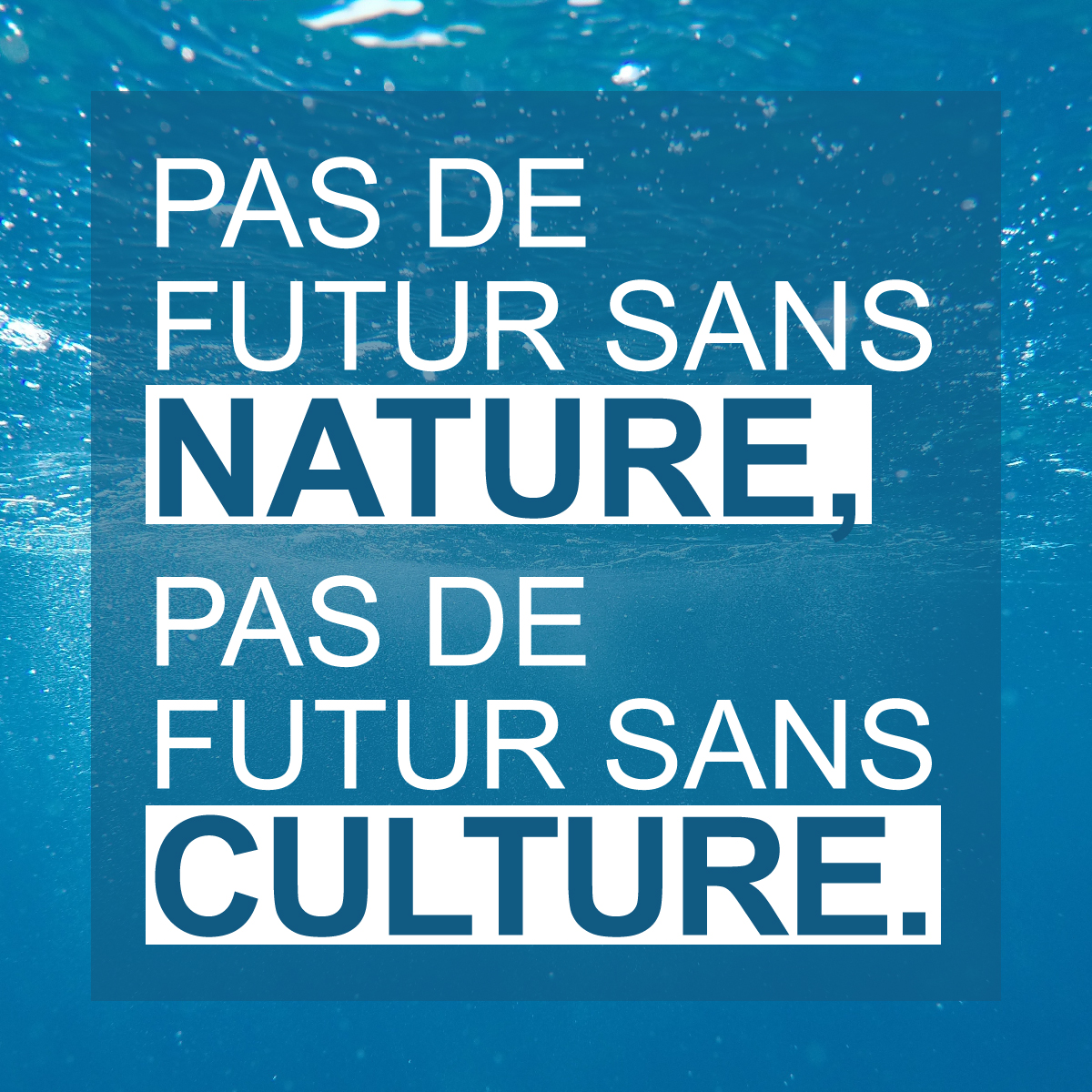
- 13/07/2021·
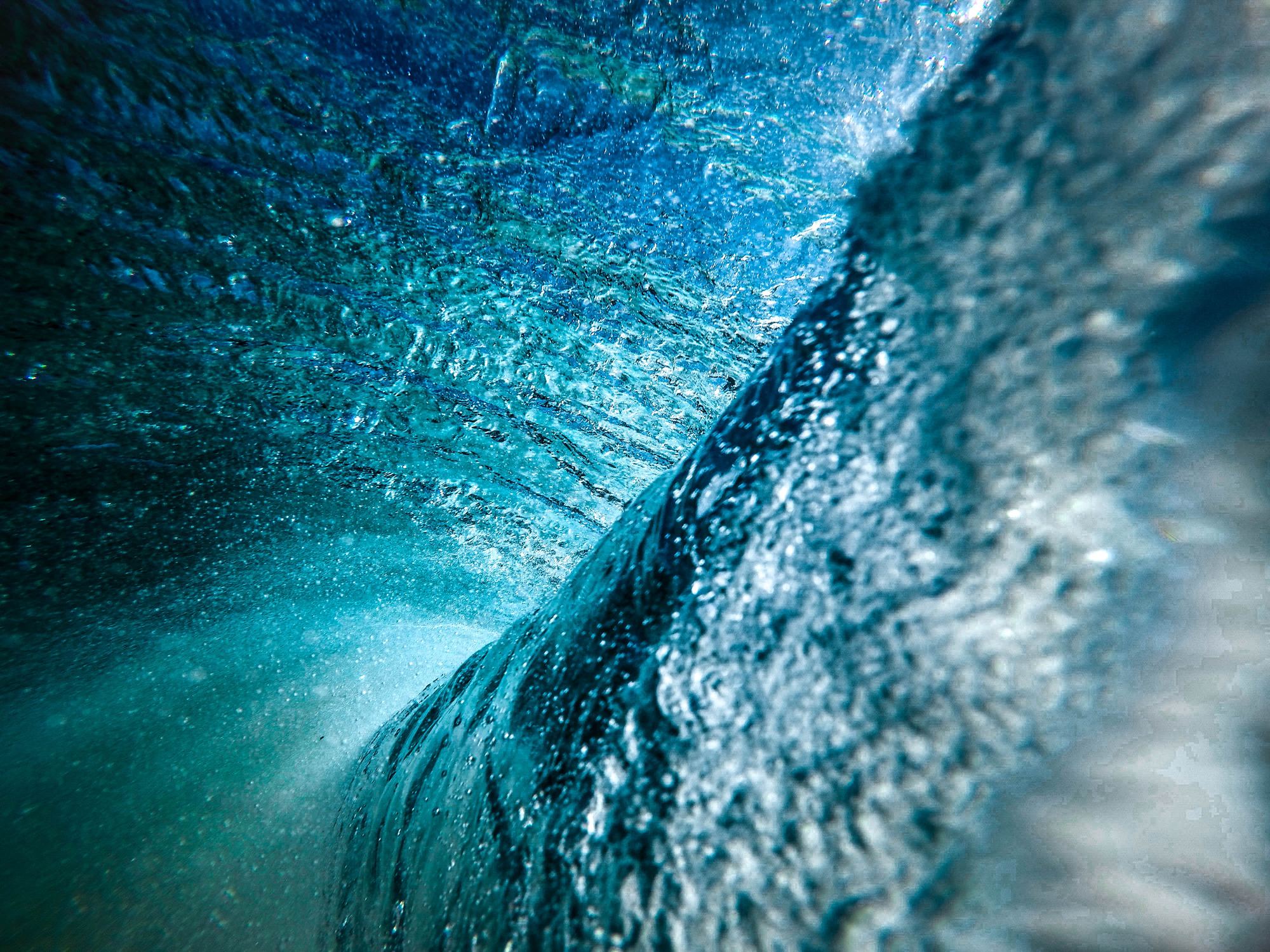
- 12/07/2021·
Monaco Ocean
Protection Challenge
An international challenge to mobilize youth for the ocean
- Home
- Categories
- News from The Institute
mobilizing today Tomorrow's decision-makers
This year, the Institute of Oceanography is working with students to launch a new international challenge: the Monaco Ocean Protection Challenge. Accompanied by the Monaco Impact association and the International University of Monaco, this is the very first international edition offered to any student, school or university.
What is it?
The objective of this challenge is to give students the opportunity to use their professional skills, creativity and commitment in the service of a preserved natural ocean. More than a simple student project, it aims to make students aware of all the opportunities offered by new forms of economy (circular, collaborative, bio-based, biomimicry, etc.) and the value of a respected environment in a professional context.
To participate, all you need to do is to be enrolled (Bachelor’s degree, Master’s degree, MBA…), be able to write and present your application in English and be willing to commit to imagining measures that make sense and have an impact on the environment, especially the ocean.
A jury of professionals and a framework of awards designed to encourage the effective implementation of projects offer a motivating and professionalizing experience to the actors of tomorrow.
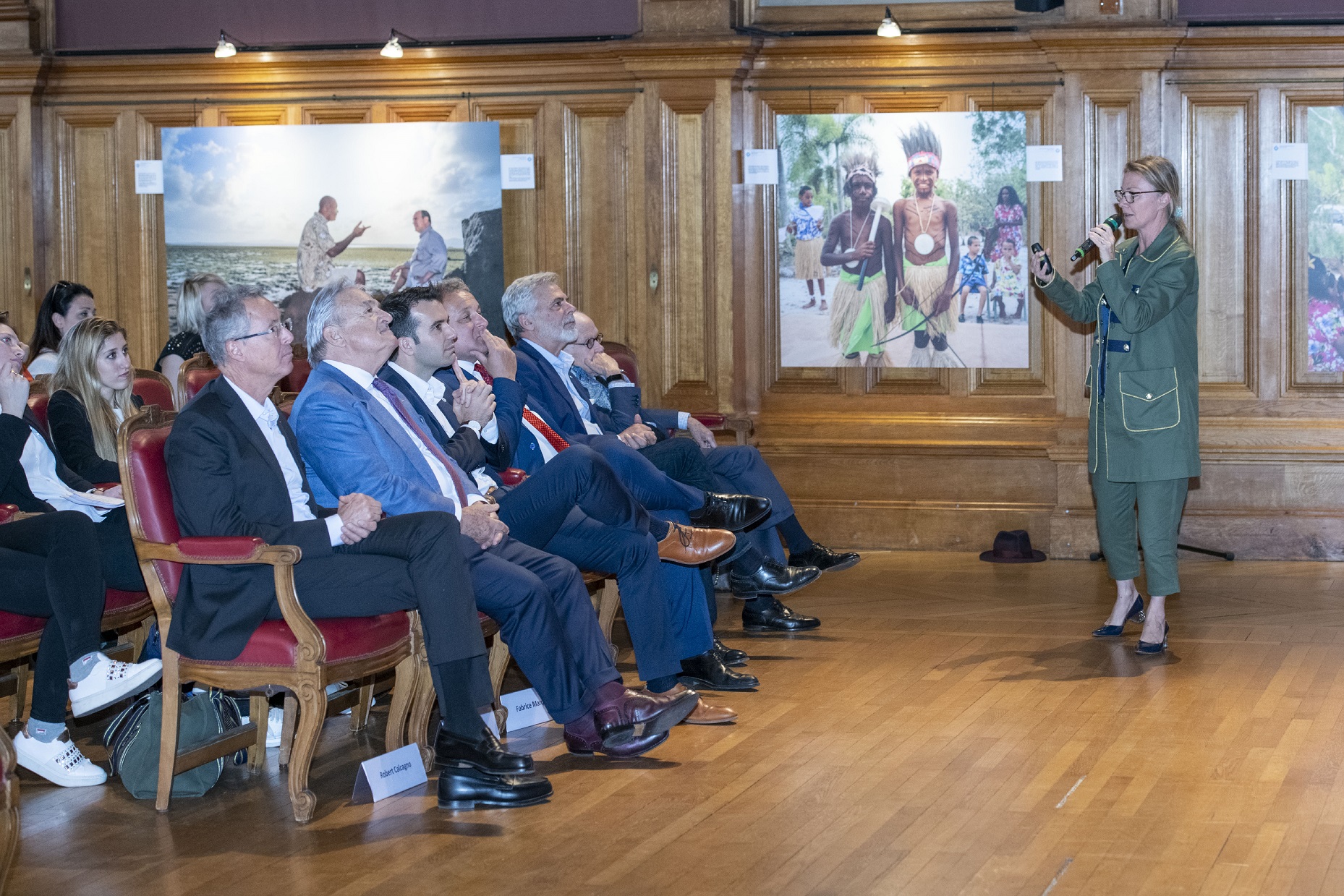
With whom?
The MOPC is a student competition organized by three partners:

And our partners :

Two possible challenges:
An entrepreneurial challenge
“Innovating to protect the Ocean”
The objective is to present an innovative product or service concept (“business concept”) that has a positive impact on the ocean. The project must be based on a study of the market potential, needs analysis, user tests or surveys and any relevant data; these projects may eventually take the form of start-ups.
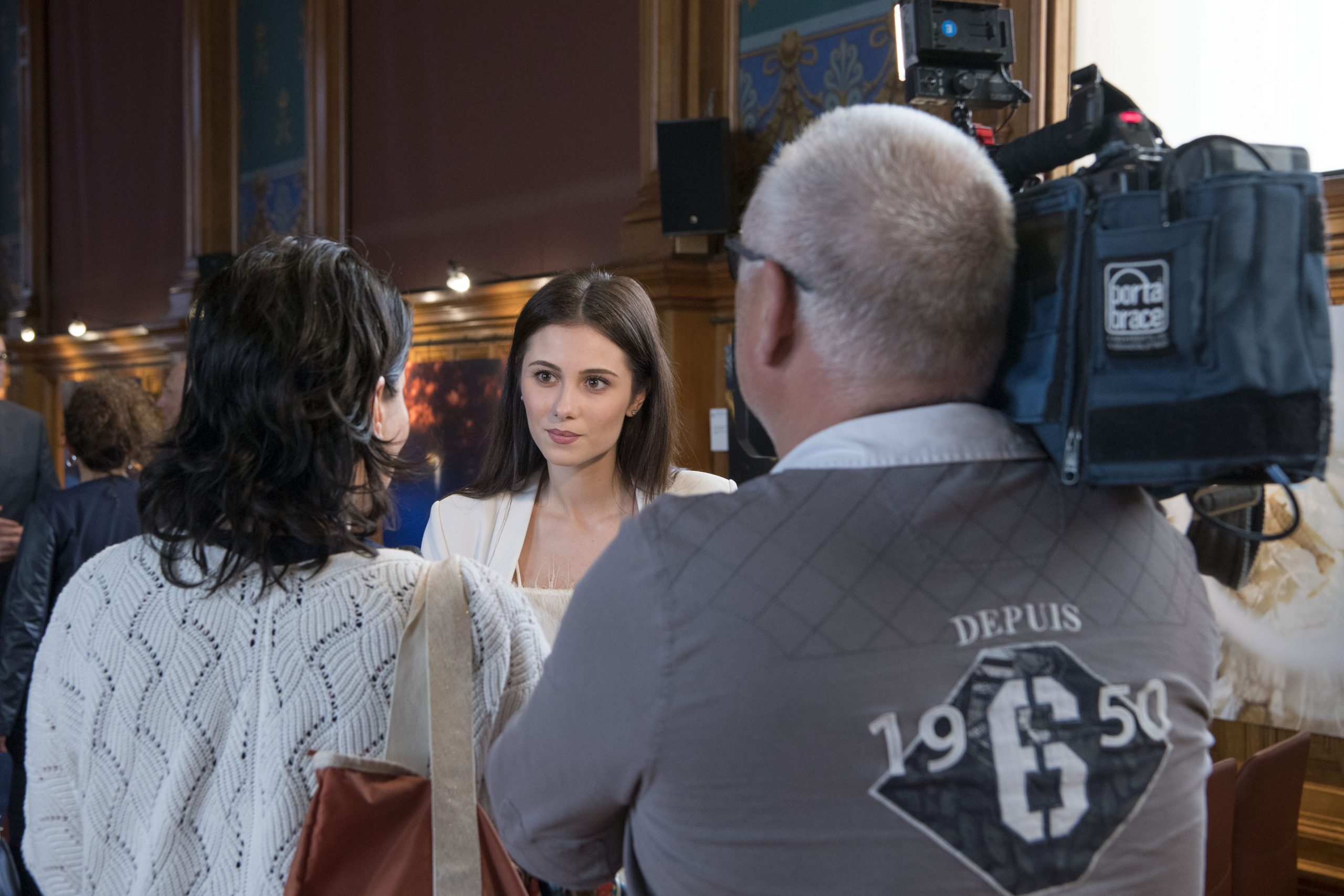
An institutional challenge
“Spreading the idea of balloon-free parties”
As part of an initiative by the Oceanographic Institute to propose alternatives to releasing balloons into the atmosphere, we are encouraging groups to consider how to disseminate this good practice and the alternatives to balloon releases as widely as possible, in the form of an awareness and communication campaign.
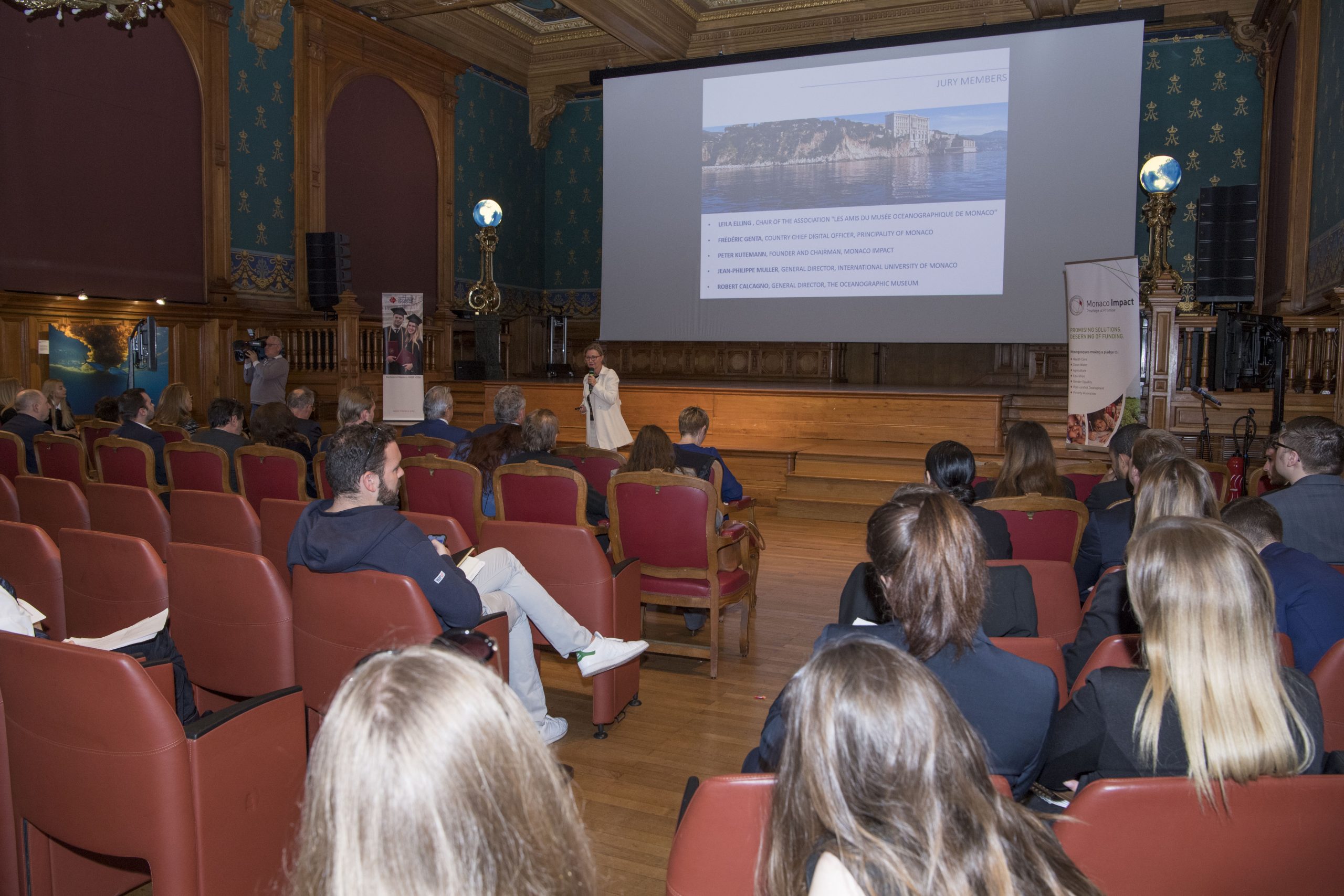
See also
Balloon release
Monaco commits to fighting pollution
- Home
- Categories
- News from The Institute
The animals are at the party!
Very good news for the environment and in particular for turtles and sea birds: the Government of the Principality of Monaco has just prohibited, by ministerial decree of 17 March 2020, the release into the atmosphere of balloons and flying lanterns for recreational, commemorative or leisure purposes.
This decision marks an important step in the Fête sans balloons initiative, launched almost a year ago by the Oceanographic Institute,
hand in hand with the Government of Monaco
(Directorate of the Environment), as part of a
programme in favour of marine turtles
.
We hope that this decision will inspire other states and communities, coastal or not, to adopt a respectful attitude towards biodiversity, without giving up the party!
As soon as sanitary conditions permit, we are getting ready to test the beautiful ideas for a Balloon Free Party that we have been collecting for several months.
By the way, if you have ideas for alternatives to balloon releases, don’t hesitate to continue sharing them on the Facebook Group specially created for the occasion or to be inspired by the proposals made:
join the group.
More about the "Balloon-free party" initiative
A released balloon rises into the sky, until it deflates or the decrease in atmospheric pressure causes it to burst into multiple fragments.
This debris then falls back to land and sea far from its release point. According to the United Nations Environment Programme (UNEP), balloons are in the top 10 of recreational waste found on the coast. They can travel thousands of miles and pollute the most remote and pristine areas.
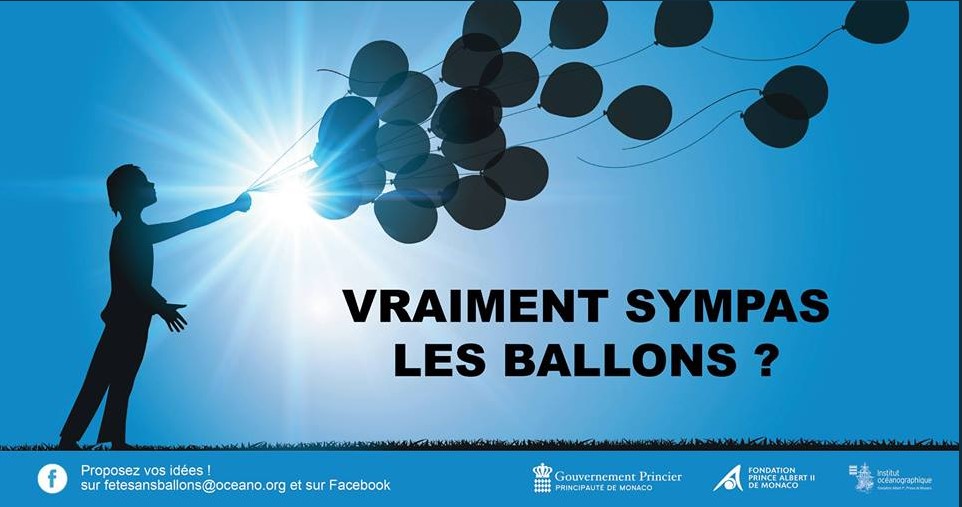
See also
IPCC SPECIAL REPORT
Special report on the ocean and cryosphere in a changing climate
- Home
- Categories
- News from The Institute
IPCC: 51st session in the Principality of Monaco
The Intergovernmental Panel on Climate Change (IPCC) held its 51st session in the Principality of Monaco from 20 to 23 September 2019 during which it considered the Special Report on Ocean and Cryosphere in a Changing Climate (SROCC).
For the IPCC, ” Humanity depends directly or indirectly on the Ocean and the Cryosphere. The ocean covers 71% of the earth’s surface and accounts for 97% of the water on earth. »
The “Cryosphere” represents all the components of the Earth system that are frozen, on the land and under the land, on the surface of the ocean or under the surface of the ocean. This includes snow cover, glaciers, polar ice caps, ice floes, icebergs, sea ice, freshwater lake ice, river ice, permanently frozen ground (called permafrost), and ground that is seasonally frozen.
Find below the replay of the conference.
WATCH LIVE - 11:00 CET ON WEDNESDAY 25 SEPTEMBER
September 25, 2019:Results
The report was made public at a press conference at the Oceanographic Museum in Monaco.
The IPCC in brief
The Intergovernmental Panel on Climate Change (IPCC) is an intergovernmental body that specializes in the study of climate change science. Established in 1998 by the United Nations, its purpose is to provide policy makers with regular assessments of the state of scientific knowledge on climate change.
– Ocean & Cryosphere in a Changing Climate (September 2019): See the Report (or click on the button below to the IPCC website to access all online resources)
The IPCC’s main assessment report comes out every six years and is punctuated by more specific special reports. Three special reports were issued during this sixth evaluation cycle:
– Global warming at 1.5°C (2018): https://www.ipcc.ch/sr15/
– Climate Change and Land Use (August 2019):
https://www.ipcc.ch/report/srccl/
The IPCC assessments are written by hundreds of international scientists, recognized for their expertise, before being submitted to the governments of the 195 member countries. The IPCC does not conduct its own scientific research but relies on existing publications.
The main challenges faced by human societies today are also associated with climate change [...]: the systemic effects of these phenomena have not spared a single area of the planet and constitute factors of environmental upheaval that exacerbate the imbalance in our oceans.”
S.A.S. le Prince Albert II de Monaco
The Prince Albert II of Monaco Foundation (P.A.I.2) is active in three priority areas of action:
- Limiting the effects of climate change and promoting renewable energy
- Preserving biodiversity
- Managing water resources and combating desertification
Ocean and Climate Platform
Born in 2014, the Platform Ocean and Climate (POC) is a coalition of scientists from different disciplines (researchers, NGOs, aquariums, French and international institutions…).
As the only French NGO to have participated in the review of this major new report, the POC is now presenting “Ocean and Climate Change: The New Challenges”, a booklet deciphering 6 major themes addressed in this report: warming, melting ice, rising sea levels, extreme events, and deoxygenation
A healthy ocean means a protected climate, and a good understanding of these cause and effect links is a prerequisite for our evolution towards a sustainable world that respects all living things.
– The Knowledge Dissemination sheets : Link to come
– The scientific sheets : Link to come
The IO and the POC: a founding member of the POC, the IO is on the Board of Directors and participates in the development of content.
VALERIE MASSON-DELMOTTE: UNDERSTANDING THIS REPORT
Climate expert and Co-Chair of an IPCC working group, member of the Board of Directors of the Oceanographic Institute, Valérie Masson-Delmotte explains the links between ocean and climate…
Office for Climate Education (OCE)
Established in 2018, the Office for Climate Education (OCE) aims to organize strong international cooperation between scientific bodies, NGOs and educational institutions to educate present and future generations about climate change.
Here are some resources produced by the COA to further your understanding of the report:
– An educational guide and resources on Ocean and Climate for primary and secondary school teachers. Link to come
– •
Summary for teachers
Why produce a report on 1.5°C of warming?
– •
Ocean and Climate Training Resources
.
– •
Greenhouse Effect Training Resources
Greenhouse Effect Training Resources: aimed primarily at teacher trainers.
The Oceanographic Institute wishes to promote the OCE tools produced in connection with Ocean and Climate Change through communication actions.
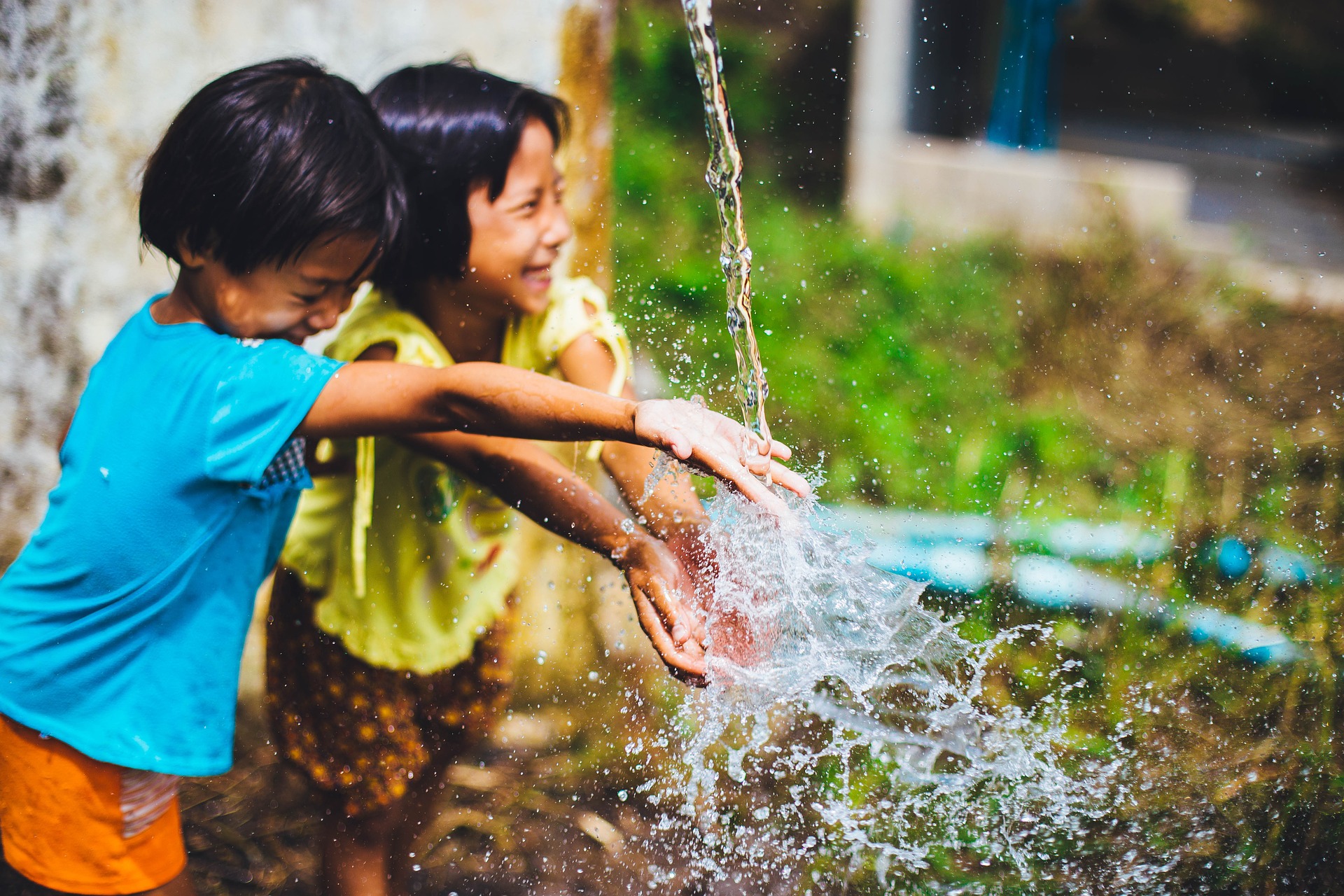
Feedback
We want people to remember that the issue is a serious one, but that we can do something to make progress and face the challenges. France has set itself the objective of becoming carbon-neutral by 2050, and for the time being emissions are not falling quickly enough.
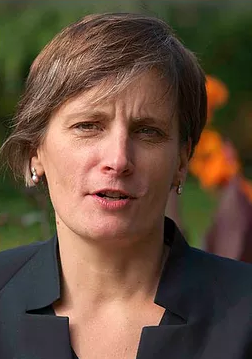
Sustainable seafood
Training at the Mirazur
- Home
- Categories
- News from The Institute
Mauro Colagreco, a committed chef at the best restaurant in the world
A training session on the sustainable consumption of seafood products was given by Pierre Gilles, Project Manager at the Oceanographic Institute and Auriane Pertuisot, Marine Project Manager at the Prince Albert II of Monaco Foundation. This training was aimed at 25 of the team members of the famous Mirazur restaurant in Menton.
A rich programme
The program included a presentation of the state of the world’s marine resources, eco-responsibility in the consumption of marine products, as well as the presentation of the Mr. Biodiversity label. GoodFish, certifying responsible products, a programme supported and carried out on the French and Monegasque Mediterranean coast by the Prince Albert II Foundation.
This intervention was part of the training that the Mirazur team follows throughout the year, particularly in the area of responsible practices.
More than 25 members of the Mirazur team were present, including Laura Colagreco and Luca, the second chef, as well as many young people in post or in training.
Congratulations to Mirazur for its environmental approach, as well as for its very successful year, since the establishment received a 3rd star in the Michelin Guide this year and was ranked “Best Restaurant in the World” according to The World’s 50 Best Restaurants 2019!
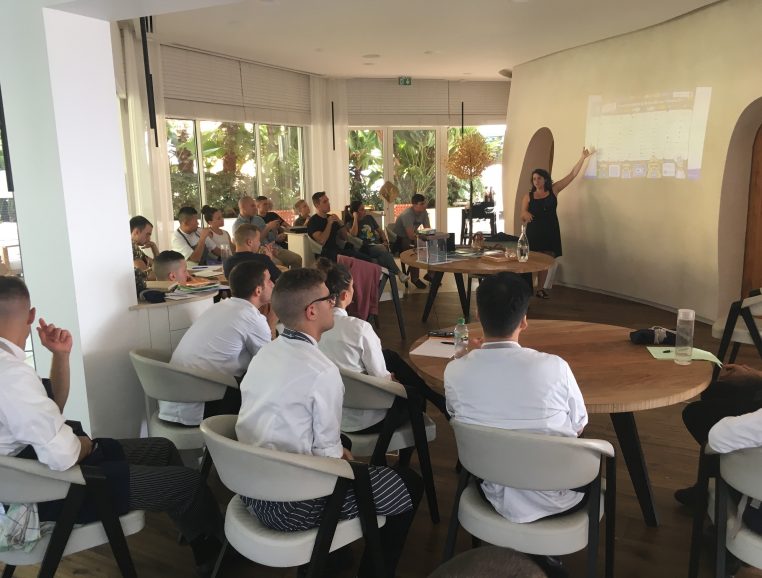
See also
H.S.H. Prince Albert II of Monaco
Speech about the Ocean
- Home
- Categories
- News from The Institute
Year 2021
- Annual session of the National Academy of Sciences 25/04/2021
On the occasion of the annual session of the National Academy of Sciences in Washington, D.C., H.S.H. Prince Albert II gave a recorded speech to commemorate the centenary of Prince Albert I’s 1921 Speech on the Ocean.
- Monaco Blue Initiative, Monaco, 22 March 2021
Introductory speech
MBI 12th edition
Lhe best thing to do is to build a dialogue between the different actors involved. To bring together knowledge, expertise and resources. To build shared diagnoses, ambitions and strategies.
At a time when major international events are in the offing, the’s agenda for 2021 in terms of both biodiversity preservation and conservation of the environment.’Océan, c’This is the ambition that must drive us.
- World Ocean Summit, 04/03/2021
H.S.H. Prince Albert II of Monaco mentioned current major ocean challenges
The Sovereign addressed, more specifically, the need for efficient management of marine protected areas, but also the hopes raised by negotiations on marine biodiversity in areas beyond national jurisdiction and the opportunities linked to the ocean in terms of energy transition. The Sovereign also reminded us of this essential message while we think of the Ocean far removed from our daily lives: “To speak of the Ocean is to speak of our human life here and now. It means tackling subjects as vast and complex as health, energy, nutrition, the economy, innovation, trade and international security.
Year 2020

- Monaco, 13 December 2020
For a deconfinement of minds
The topicality of the closure of cultural venues and their major roles in our society and economy is more relevant than ever. This Tribune explains the importance of the dialogue between Science and Culture to build the world of tomorrow. This is not just a question of economic activity; it is our openness and resilience in the face of the current crisis and in inventing the future that is at stake.
It istime to oppose the rebound of the epidemic and the economic crisis with a rebound of enthusiasm and imagination. With the economy, it is curiosity, discovery and creativity that must be revived so that we emerge stronger, better able to face the major environmental and social challenges.
To deconcentrate minds and rekindle the imagination, to take up the planetary challenges and prepare a more livable and exciting future, is our answer, because there is no future without Nature, nor a future without Culture.
A Tribune initiated by the Oceanographic Institute, published in the Journal du Dimanche, whose first signatory is H.S.H. Prince Albert II of Monaco, joined by 32 other international signatories from the worlds of science and culture: Laurent Ballesta, Charles Berling, Stéphane Bern, Sandra Bessudo, Robert Calcagno, Jean Chambaz, Xavier Darcos, Bruno David, Peter Herzig, François Houllier, Alexis Jenni, Murielle Mayette, Erik Orsenna, Vladimir Ryabinin, Enric Sala, Philippe Taquet, Valérie Verdier…
- International Hydrographic Organization, 16/11/2020
Opening remarks of the IHO Assembly by HSH Prince Albert II of Monaco
The achievements accomplished by the International Hydrographic Organization are a sign of the role and necessity of this lasting notion of multilateralism for technical consultations.
The IHO was founded in this sprit almost 100 years ago and it is just as relevant today as it was at the time of my great great grandfather, Prince Albert Ist who invited the International Hydrographic Bureau, predecessor of the International Hydrographic Organisation, to set up its headquarters here in Monaco in 1921, where it has remain every since.
- Virtual Summit of Heads of State and Government on biodiversity,
New York, September 30, 2020
Decision-makers take action for nature and biodiversity
It is not just a matter of preserving a few species, a few ecosystems, or even a few seas. It is a question of preserving our planet, our future, our life.
That is why it is so important to act, and to act now.
- United Nation Ocean Conference, 04 June 2020
"A digital ocean: data and science session"
Interconnecting the decisions of political and economic players more effectively with the work of the scientific community should more than ever before be at the heart of our strategies, because the connection between science, decision makers and public opinion has always been the principle of any responsible action.
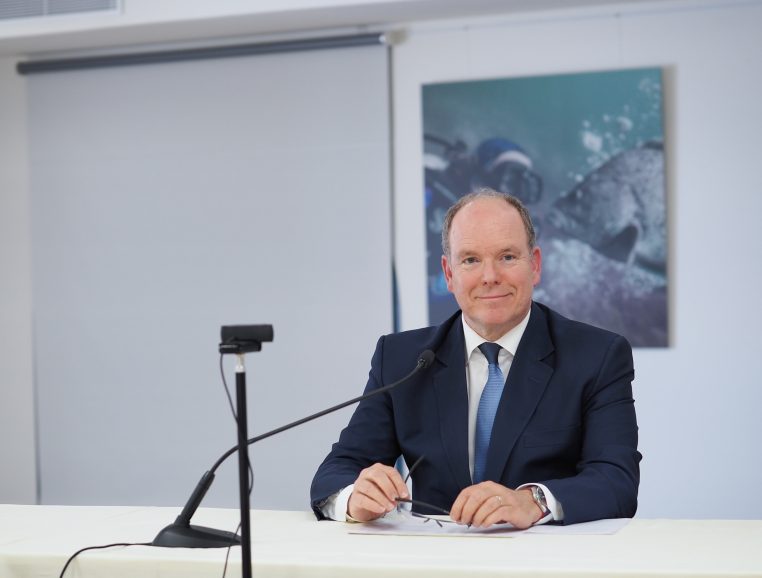
- Monaco Blue Initiative, 28 May 2020
opening of the MBI #11
In the particular context of the COVID-19 crisis, the MBI that was to be held in March in Monaco was cancelled and replaced by high-level video-conference sessions. On this occasion, H.S.H. the Prince made a significant speech.
“To know men, one must see them act” wrote Rousseau. This applies to our subjects as much as to others: to really know our relationship with the oceans and to hope to change it, we must see ourselves acting towards the seas. This is what the Monaco Blue Initiative is all about.
- Monaco, 22 April 2020
Earth Day: HSH Prince Albert II of Monaco made a speech in favour of protecting the planet
The fragility of humanity that we are witnessing must lead us to reflect on our priorities and, first and foremost, to reinvent our relationship with nature.
Through the immense social and economic changes that it is bringing about, and that it will bring about for many months, and perhaps for many years to come, this crisis must encourage us to better preserve our Planet, its climate, its biodiversity and its oceans.
Year 2019
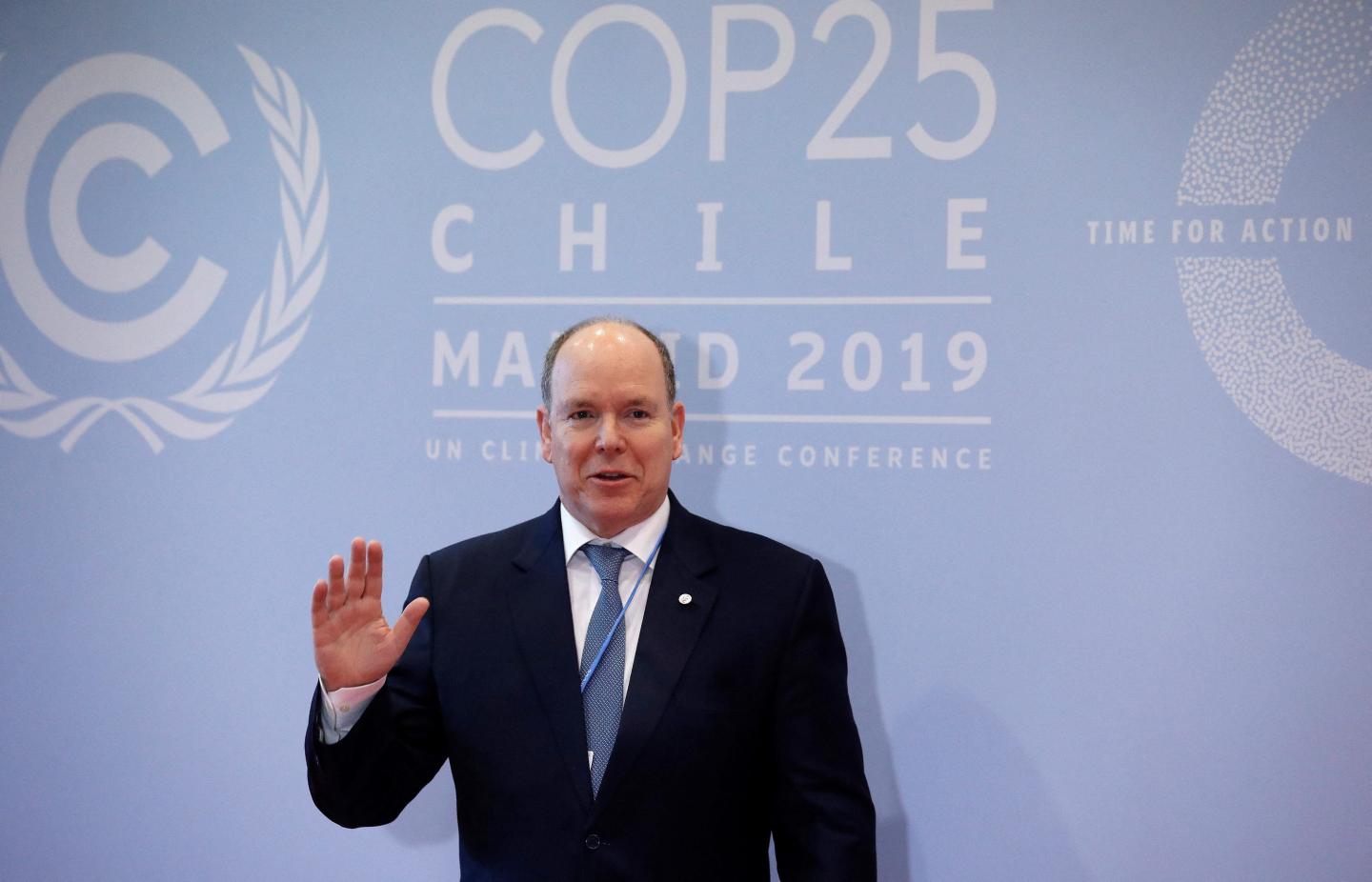
COP 25 Chili - Madrid, December 2019
The “blue cop”, focused on the ocean
In line with his commitments on the IPCC special report on the ocean and cryosphere, H.S.H. Prince Albert II participated in the COP 25 organized by Chile and relocated in Madrid, from 2 to 13 December 2019.
We cannot effectively combat climate change without taking swift, ambitious and coordinated action to protect and preserve the Ocean. The world will be watching COP25 and expects nothing less than a collective commitment of responsibility to ensure the protection and integrity of our ocean ecosystem and to mitigate further damage to the Earth and all living things on it.
- Oceanographic Museum of Monaco, 7 November 2019
Presentation of the Grand Medals Albert I
The global pressure on our planet affects everyone and hits the weakest hardest. In this context, international solidarity and multilateral dialogue are more essential than ever.
The ocean, like the climate, invites us to do so. They link species, peoples and individuals of all origins and conditions, wherever they may be, for better or for worse, by a link as indestructible as it is vital.
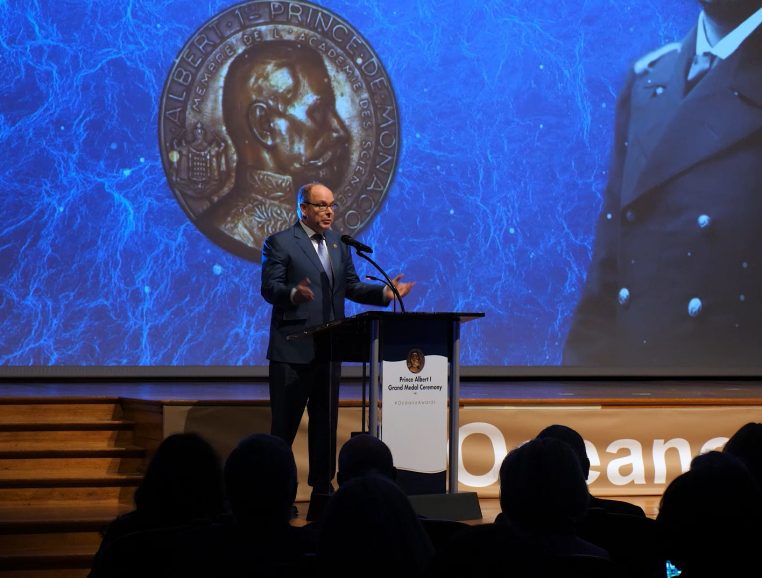
United Nations General Assembly - 24 Sept. 2019
the principality committed to the climate
The Government of Monaco is committed to carbon neutrality and is giving itself the means to achieve it, declared Prince Albert II at the United Nations General Assembly. In his speech, the Sovereign also emphasized the role of forests and even more so that of the ocean. Monaco has “historically chosen to support science,” he added.
Climate change and the collapse of biodiversity, far from being isolated crises, are two alarming symptoms of the Antrhopocene that need to be addressed in synergy.
- Paris, UNESCO Headquarters - 29 July 2019
Centenary of the International Geodetic and Geophysical Union
The ardent need to protect the ocean has succeeded the time of discovery and knowledge of the seas, which was that of my great-great-grandfather.
Monaco strives to continue to follow his will and to make his legacy fruitful by updating his message.
Through its own initiatives as well as by proposing to its partners to relay and amplify their own actions, the Principality strives to be a “voice of the ocean”…

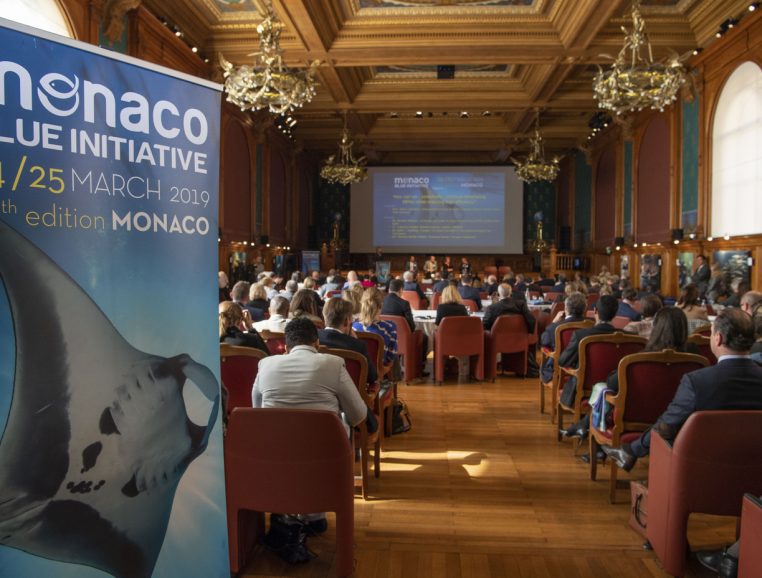
- Monaco Blue Initiative, 25 March 2019
opening of the MBI #10
There is a phrase by the great historian Jules Michelet that often comes to mind when I enter this Oceanographic Museum, which is right here on the Mediterranean.
“It is with the sea that all geography should begin”.
We also know that it is with the sea that all history must begin, for we know that we were born of the ocean and that our civilizations were born of the sea.
But it is also by the sea, more and more, that any economy should start.
I am sure that all politics, morals and philosophy will have to begin more and more with the sea.
- Monaco, Oceanographic Museum, 16 April 2019
Meeting of European Oceanography Centres
I think it is necessary, as you said, to develop a better understanding of the general public [sur les questions des sciences de l’océan]. People like information that tells a story, and if we can draw their attention to different ways of telling that story, and in a more engaging way, I think that would certainly help.
Listen to the recorded speech in English.
- Ecouter le discours (anglais) 00:00
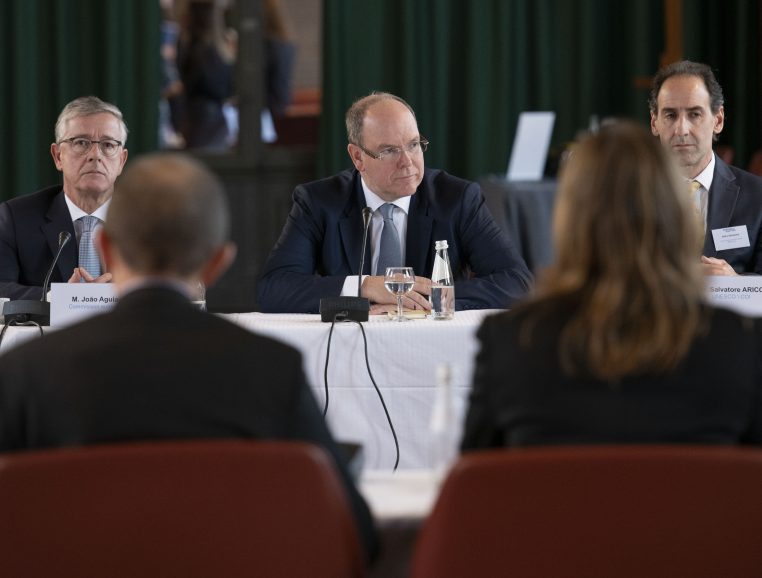
SEE ALSO
Message from H.S.H. Prince Albert II of Monaco, on the occasion of the 74th session of the Marine Environment Protection Committee, London – 13 to 17 May 2019, International Maritime Organization
Message from H.S.H. Prince Albert II of Monaco to the Director-General of UNESCO at the First Planning Meeting of the UN Decade of Ocean Sciences for Sustainable Development – 13 May 2019
Speech by H.S.H. Prince Albert II of Monaco, at the UN Tribune on the occasion of the conference on the oceans in the framework of Development Goal 14 “To conserve and sustainably use the oceans, seas and marine resources for sustainable development” – Speech June 2017.
The next edition of the Maritime Occupations Forum is to be held on 7 December, at the Maison, 195 rue St Jacques (RER Luxembourg) in Paris. Come and meet experts in a range of different careers in the marine sector.
The twilight of nature
- Home
- Categories
- News from The Institute
On May 6, the Intergovernmental Panel on Biodiversity and Ecosystem Services (IPBES) released an alarming report on the global state of biodiversity…
In 2011, the United Nations Decade for Biodiversity began, with ambitious targets for improvement by 2020. With a year to go before the end of the decade, who remembers it existed? Who can be pleased with the successes achieved?
The preservation of 10% of the ocean by Marine Protected Areas will not be achieved. However, it is certainly in this area that the best progress of the decade has been observed. For the rest, the assessment of biodiversity and ecosystem services coordinated by 149 international experts of the IPBES is particularly cruel. This work, unanimously validated by the representatives of 110 countries, cannot be criticized for its lack of seriousness. And, if we are to believe the experience of the IPCC, which is the model for IPBES 20 years in advance, successive reports gain in precision but never in optimism.
The ocean has not been spared
As late as 1950, Rachel Carson wrote in This Sea That Surrounds Us, ” [L’Homme] cannot dominate or modify the oceans in the same way that it was able to reduce and plunder the continents during its still brief occupation. “Today, if 75% of terrestrial environments are “significantly altered”, 66% of marine environments are subject to “increasingly cumulative effects”.
On land, the consumption of natural areas and their fragmentation are the main causes of biodiversity loss and reduce the scope for adaptation to climate change. In the sea, fish retain the ability to migrate to escape the continued warming of the ocean. Bony fish seem to be the least vulnerable today.
However, overfishing remains massive on an ocean-wide scale and is only getting worse. One third of stocks are now being exploited beyond natural renewal, thus “eating into” the natural capital.
Fishing is now one of the most globalized activities. As stocks have been depleted, industrial fishing, supported by unsustainable subsidies, has moved away from the centres of consumption to the high seas, the deep sea and the poles.
INEQUALITIES AND CONFLICTS
Artisanal fishing, which supports 90% of the world’s fishermen with only half the catch, is largely practiced in the tropical belt. However, in addition to overfishing, the latter is doubly a victim of climate change: fish are leaving this area, which has become too hot, to migrate to temperate regions, and coral reefs are in the front line of “heat waves”. The surface area of reefs has been halved since 1870 and species diversity is eroding rapidly: 33% of coral species are now threatened. However, it is precisely this diversity that creates the geometric complexity of the reefs that allows the reproduction and growth of the fish.
This is a glaring example of the injustices of biodiversity: temperate countries, which were the first to exceed the limits of fishing and CO2 emissions, could be the winners in the coming mess!
Similarly, while biodiversity is declining at a slower rate in areas managed by indigenous communities, the new race for resources is increasing the pressure on them, promising social as well as environmental disaster.
The IPBES report also analyses the very unfair nature of the erosion of biodiversity, while the consumption of certain parts of the world is degrading the environment at a distance. It also stresses that these inequalities “fuel social instability and conflict”, while “more than 2,500 ongoing conflicts” are linked to access to certain resources.
We can therefore only welcome France’s intention to devote the G7 Environment Summit, which ended on 6 May, to “combating inequalities by protecting biodiversity and the climate”. It remains to be seen whether action can be taken, in an international context that is not currently conducive to such a collective commitment.
In terms of biodiversity as in climate, there is no doubt that our planet has been much worse off over the last few million years but, as the IPBES report points out, degradation has never been so rapid since the emergence of the human species. As for the variations that man has previously experienced, they have affected a few million individuals and not ten billion. And in those days, borders did not exist. Will Man be caught in his own fragmentation?
Speeding up, but in which direction?
It is true that human society has never been so developed or so fast in its evolution. The IPBES report went around the world in a few hours. Everyone can take the measure of the situation and invent solutions.
However, just as computers have not eliminated paper and telecommunications have not eliminated air travel, the technological evolution of society has not so far been conducive to slowing the erosion of biodiversity. On the contrary. As living standards have risen, so has resource consumption, in addition to rapid population growth. Individual consumption of seafood products has doubled over the last fifty years in the global race for animal protein.
“Technology” in itself cannot therefore be an answer, and our history for at least two centuries has tended to consolidate and crystallize a model of unbridled consumption that is eroding the “fundamentals” of our planet, the services that IPBES has highlighted: while widespread overfishing has led to a gentle decline in the quantities fished over the past two decades, the disappearance of pollinating insects will soon affect agricultural crops.
IPBES advocates rapid “transformative change” at all scales simultaneously, from local to global. However, in order to obtain the unanimity necessary for the approval of the report, it is careful not to specify the solutions that will make up this overall change. And preserving biodiversity is an even more complex challenge than climate change, which is only one component…
CHANGING THE WORLD
IPBES makes explicit “Transformative change is defined as fundamental system-wide change that takes into account technological, economic and social factors, including paradigms, goals and values.”
While assembling a vast toolbox of identified intervention tools, IPBES emphasizes the depth of change required: “While current structures often distract from sustainable development and are the indirect mechanisms of biodiversity loss, deep, structural change is needed. By its nature, transformative change will meet opposition from those with a vested interest in the status quo, but this opposition can be overcome in the public interest.”
Therefore, the signals that govern our society must be redesigned, through “incentives for environmental responsibility and the elimination of harmful incentives”.
To use the road safety slogan, we are “All responsible”. But who is ready to lift their foot off the gas, which government is ready to put in place speed cameras when we know that we are all going into the wall at high speed?
See also
PARTYING WITHOUT BALLOONS
- Home
- Categories
- News from The Institute
Balloons have to go, not parties!
Balloons are symbols of celebration, they evoke festivity, joy, conviviality… but released in the air, they end up in the ocean and threaten our environment. Many sea turtles, dolphins and birds mistake them for food and die.
The Government of Monaco, the Prince Albert II of Monaco Foundation and the Oceanographic Institute are joining forces to carry out the “Fête sans ballons” initiative in order to invite citizens to contribute and get involved by proposing ideas and alternatives that would be just as festive but more environmentally friendly: together, let’s invent a celebration that also gives pleasure to marine turtles…
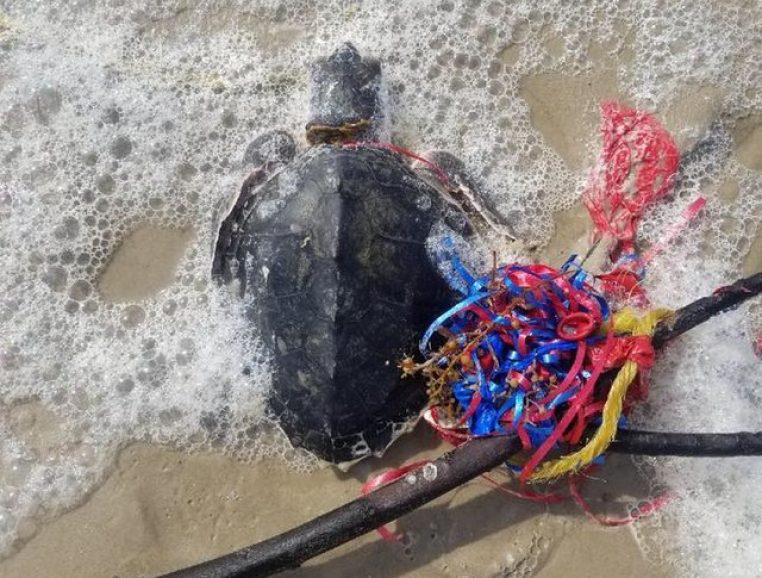
What happens to a balloon when it is released...
A released balloon rises into the sky, until it deflates or the decrease in atmospheric pressure causes it to burst into multiple fragments. This debris then falls back to land and sea far from its release point. According to the United Nations Environment Programme (UNEP), balloons are in the top 10 of recreational waste found on the coast. They can travel thousands of miles and pollute the most remote and pristine areas.
...and what are the consequences for the sea?
Balloons have a negative impact on our environment by polluting streams, lakes and beaches. Dropping a balloon is the same as intentionally throwing garbage on the ground or into the ocean. As the balloons make their way through the water, their tattered ends and floating pieces can resemble jellyfish or other marine life that are eaten by marine animals such as sea turtles, fish and dolphins. When these pieces are mistaken for food and ingested, they can become lodged in the digestive tract of a turtle, for example, preventing the animal from eating and causing a slow and painful death.
This young loggerhead turtle Caretta caretta, about 20 centimetres long, taken in charge by the Oceanographic Museum, had her life saved in extremis when she was able to evacuate the balloon she had ingested.
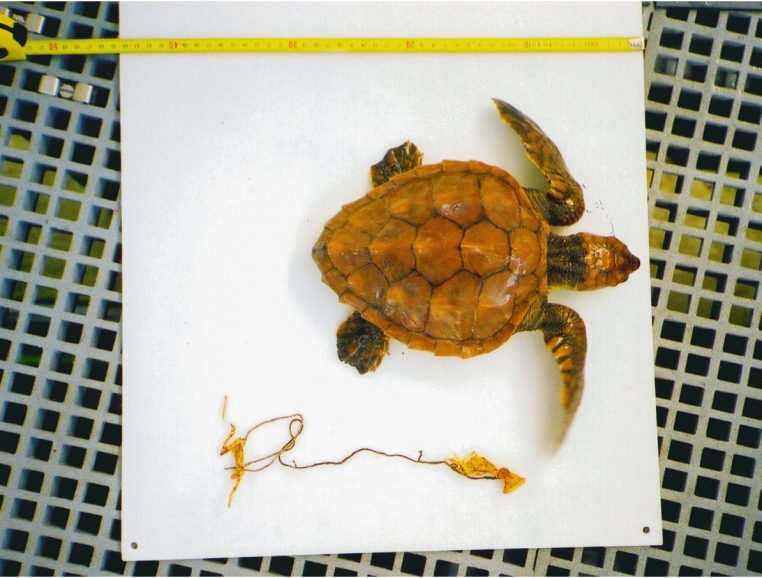
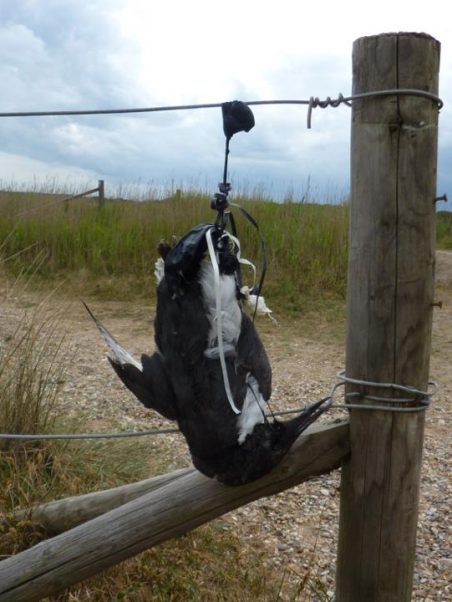
WHAT ABOUT ON LAND?
Terrestrial wildlife can also fall victim to balloons and balloon strings when the pieces fall to the ground along roads, rivers or on trees and bushes. Birds have been found with ribbons wound round their beaks or wings, and have been found choked after getting tangled in strings attached to trees or power lines. And just like marine animals, they can succumb after ingesting balloons. Unfortunately, almost half of all bird species are liable to eat balloon waste. Debris has also been found in nests and birds have been observed feeding their young with it.
WHICH BALLOONS ARE WE TALKING ABOUT?
These are “Unmanned free balloons carrying no payload (including balloons and flying lanterns with no payload or negligible payloads such as letter cards)”. These balloons are for recreational, leisure or commemorative purposes. They are pollutant by their envelope, by the rigid plastic rod or by the ribbon or fastener with which some models are equipped.
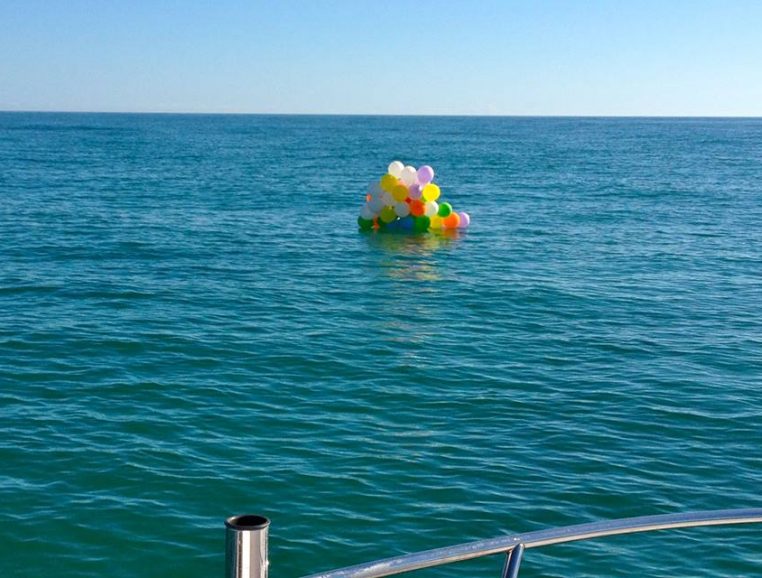
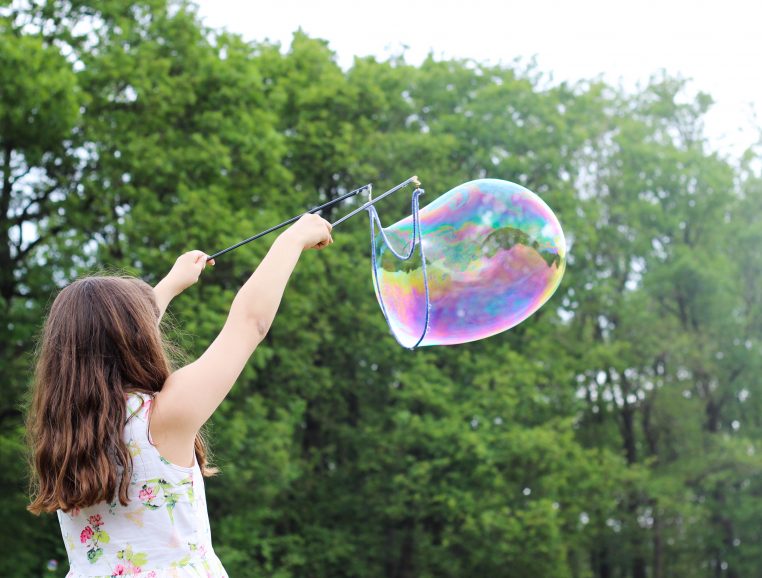
Having fun without balloons
Balloons are usually manufactured by polymerization, and are therefore non-biodegradable. Although there are balloons that are labeled “100% biodegradable”, it is important to note that the term biodegradable has no normative or regulatory status. Moreover, this degradation only takes place under specific conditions after a certain time.
Even when called “biodegradable”, balloons are still harmful to the environment and dangerous to many animals. It is therefore not advisable to drop them in the air!
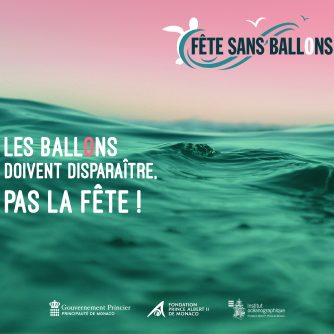
ALTERNATIVES: CALL FOR IDEAS
There are already some alternatives such as natural soap bubbles, paper pompons, candles, kites or reels, pennants, banners…
If the use of balloons is unavoidable for you then keep your balloons indoors to reduce the risk of accidental waste, ensure that the outer balloons are securely fastened, avoid using non-biodegradable (film-coated) mylar balloons and ensure that all balloons and accessories (such as clips and ribbons) are collected.
You can also let your imagination run wild and who knows what creative, one-of-a-kind ideas you might come up with! Don’t hesitate to tell us about it on the Facebook page of our initiative!
Find out more
See also
The Monaco Federation of Ocean Science
- Home
- Categories
- News from The Institute
Meeting in Monaco, leaders of Europe’s leading marine science research organisations agreed to strengthen their strategic cooperation and collectively increase the reach of marine science in society. At the invitation of the Oceanographic Institute, they decided to form a Monaco Federation of Ocean Sciences.
A NEW LEASE OF LIFE FOR MARINE SCIENCES
Giving a new impetus to ocean sciences on a European scale was the ambition of the meeting that took place at the Oceanographic Museum in Monaco on 26 March 2019 in the presence of H.S.H. Prince Albert II and representatives of the European Commission, the International Oceanographic Commission and other networks. The leaders of these major organisations thus gathered drew up the main lines of the Monaco Federation of Ocean Sciences, which aims to develop initiatives to strengthen ocean culture throughout Europe and to promote the values of respect for nature and sustainable development. Mobilizing marine sciences, it also includes other fields of research such as economics, sociology and law applied to the sea, in order to cover all aspects of man’s relationship with the sea. To ensure the dissemination of knowledge, it also relies on the new players in ocean knowledge (private initiatives of major patrons, new explorers, etc.). Transdisciplinarity, mediation and innovation are sought, to overcome the current silos, to enlighten more effectively the action of the decision-makers and to meet the expectations of society.
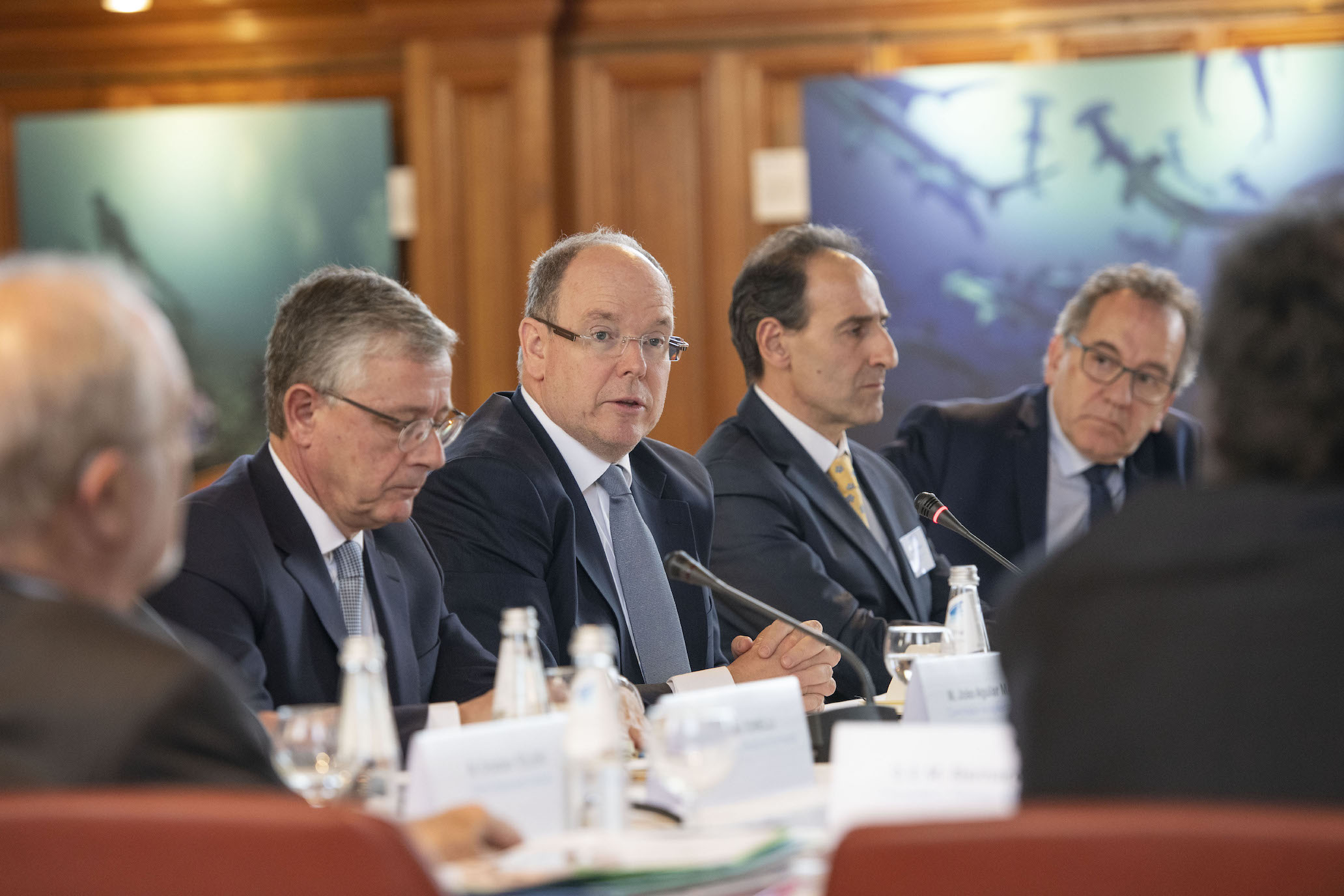
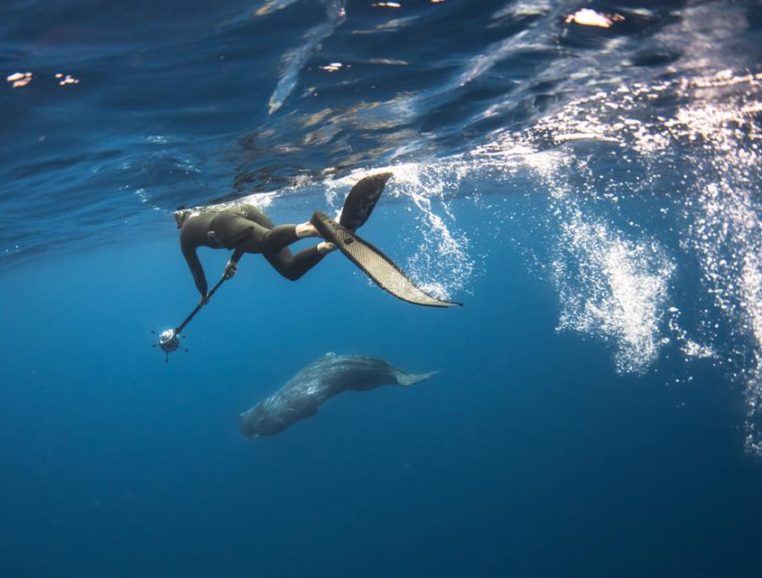
A NEW TALE OF THE OCEAN
The increasing threats to the ocean make it more necessary than ever to understand the complexity of ecosystems. This requires modelling and increased interdisciplinarity, but also a new form of narration that can popularise knowledge. In line with the Sustainable Development Goals, the Federation is therefore planning to collectively build a positive communication on the role of the ocean in improving human well-being. Strengthening the communication approaches of scientists will make often complex topics related to ocean ecology accessible. A wide audience is targeted, with the aim of generating a fundamental mobilization in society.
ACTING RESOLUTELY AND WITHOUT DELAY
The Federation is committed to long-term action and is working to identify the major priority areas of research to inform sustainable decisions. The sequence highlighted the extent to which the impact of climate change (the subject of the IPCC special report “Climate Change, Ocean and Cryosphere”) and plastic or industrial pollution on the ocean, which has already been extensively studied, can have an impact on the negotiations underway. It was also felt that emphasis should be placed on a better understanding of the deep sea before any mining is considered.

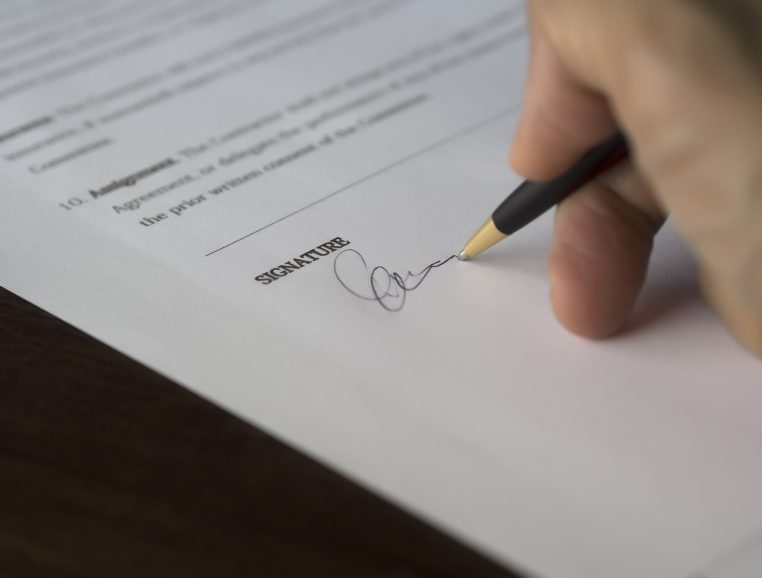
A PLEA FOR THE OCEAN
The Federation agreed to develop a scientific advocacy on key ocean ecological issues as early as September 2019, based on a scientific consensus shared by the major European member centres. This holistic message to inform decision-makers can be carried by each member in their country, within their networks and to the media. It will also fuel the commitment of H.S.H. Prince Albert II of Monaco. The Federation will be the bearer of ambitious proposals for the Horizon Europe programme, as well as for the United Nations Decade of Ocean Sciences for Sustainable Development (2021-2030). It will examine opportunities for more formal cooperation structures, up to and including the creation of a European Ocean Agency.
See also
Aquariums
against pollution
- Home
- Categories
- News from The Institute
Aquariums of the world against marine pollution
Every year, millions of tons of waste end up in the ocean. It is estimated that our seas may contain more plastic than fish by 2050! The European Commission and aquariums are mobilising with the help of the Oceanographic Institute.
A campaign on an unprecedented scale
The European Commission launched the “World’s Aquariums Against Marine Litter” campaign in 2017, with the support of the Oceanographic Museum of Monaco, the European Union of Aquarium Curators and the World Association of Zoos and Aquariums. With this initiative, which is part of the actions of the conference
Our Ocean 2017
(Malta, 5-6 October 2017), the Commission is contributing to the United Nations Environment Programme (UNEP) #CleanSeas campaign. It relies on a coalition of 150 aquariums from 38 countries[2] to raise awareness of marine pollution by human waste. The campaign was officially launched in Monaco on 27 July 2017 by the European Commissioner for Environment, Maritime Affairs and Fisheries, Karmenu Vella, in the presence of H.S.H. Prince Albert II, the head of the United Nations Environment Programme (UNEP) Erik Solheim, and WAZA (World Association of Zoos and Aquariums) CEO Doug Cress. The network thus established with the assistance of the Oceanographic Institute is coordinated with the European Union.
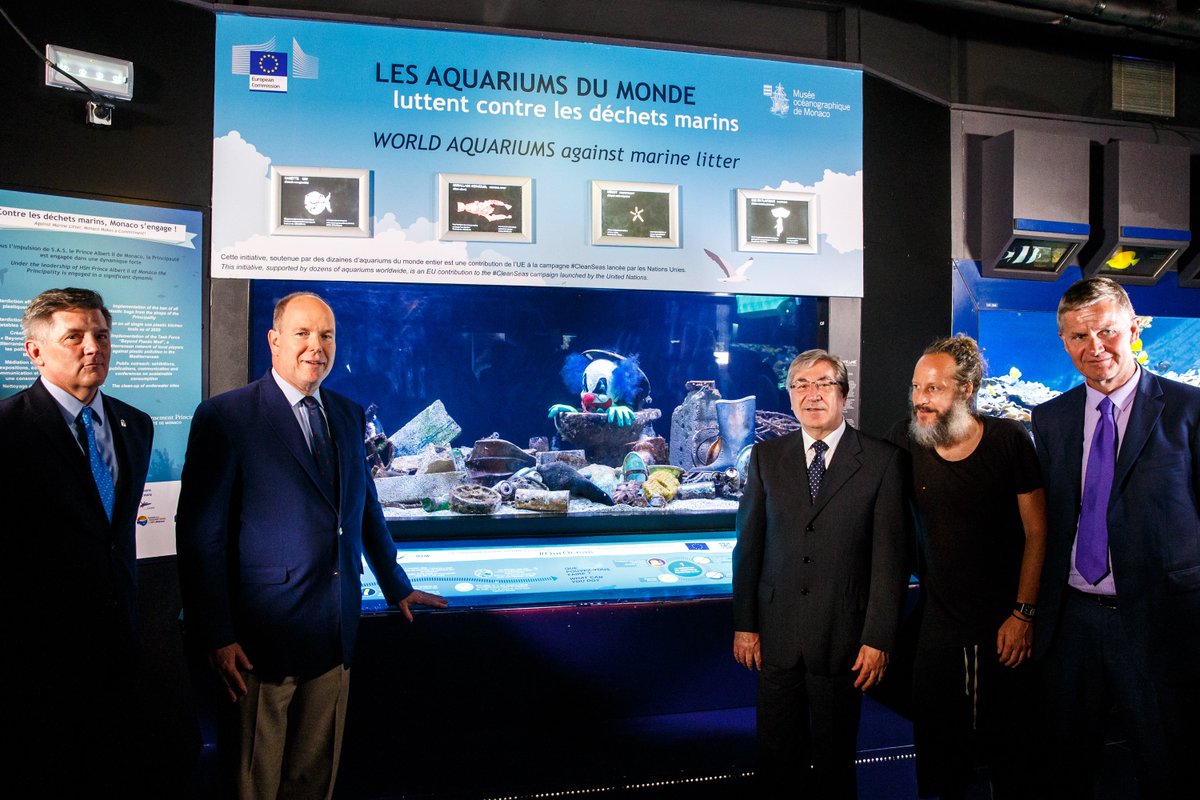
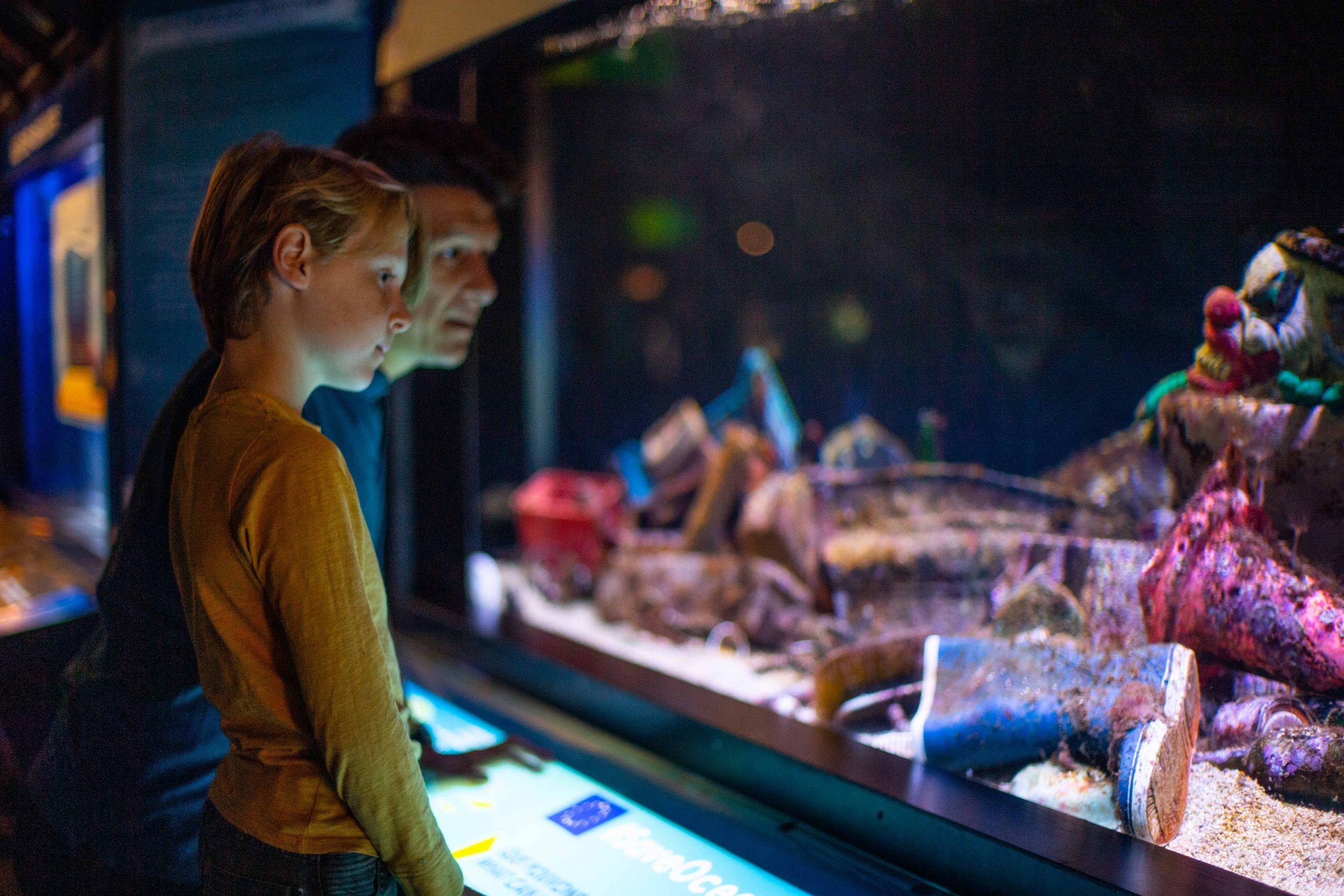
How can we raise awareness?
Some figures speak for themselves: 10 million tons of plastic are dumped into the ocean every year, and by 2050 our seas may contain more plastic than fish. Yet 3 billion people depend directly on the ocean. To try to reverse the trend, the establishments involved in this campaign against marine litter are taking action in a variety of ways: by displaying a tank full of marine litter in their aquariums (to raise visitors’ awareness, as Philippe Pasqua’s installation at the Oceanographic Museum in Monaco does), by launching beach cleaning initiatives, by showing awareness-raising films, by hosting artistic creations using litter, etc. All the aquariums involved in this campaign also spread its messages through their communication channels, starting with their social networks. They also developed and distributed press releases that resulted in hundreds of articles, television and radio broadcasts.
Transforming this campaign into permanent action
Following this success, the European Commission and the United Nations Environment Programme (UNEP) – together with five international partners including the Ocean Institute – announced a new commitment at the Our Ocean 2018 conference: to transform the 2017 campaign into an ongoing action focused on plastic pollution. In addition to long-term communication efforts, the coalition’s facilitators encourage aquariums to reach out to as many partners and potential “multipliers” as possible to maximize the impact of this campaign. What’s at stake? Promote best practice in behaviour change at all scales: local, regional, national and global. Everyone is invited to join together under the banners #BeReadytoChange and #BeatPlasticPollution, hashtags supported by the European Union and the United Nations. 180 aquariums from 41 countries have already confirmed their commitment to this campaign, which is also being taken up by UNEP as part of its #CleansSeas action from July 2019. The Institute of Oceanography will continue to play its role as the federator and coordinator of this global network.
